Iowa is a state rooted in agriculture, steeped in Midwestern values and deeply tied to its once-an-election-cycle political tradition: the Iowa caucuses.
Once every four years, thousands of media members, hundreds of politicians and the eyes of our entire nation fall to the state of just over 3.1 million for the first hard-knocks test of the primary season.
Tonight, the people of Iowa will caucus for one of seven Democratic candidates: Vermont Senator Bernie Sanders, former Vice President Joe Biden, Massachusetts Senator Elizabeth Warren, former South Bend, Indiana Mayor Pete Buttigieg, Minnesota Senator Amy Klobuchar, tech entrepreneur Andrew Yang and hedge fund investor and philanthropist Tom Steyer.
The field of candidates has been tight. As of Monday afternoon, a poll conducted by Focus on Rural America party pollster David Binder showed just four percentage points separating the top four candidates: Buttigieg in first and Biden in second, followed by a tie between Sanders and Warren. After the Des Moines Register canceled its anticipated Iowa Poll on account of excluding Buttigieg’s name from some survey interviews, polling information has added another layer of contention in the race.
With a tight race, caucus rule changes and pressure on the Democrats to perform in November high, caucus-goers head into Monday night with a hefty decision to make.
14 East magazine reported on the 2020 Iowa Caucus from Saturday, February 1, to Monday, February 3, at rallies and caucuses in eastern and central Iowa. Marissa Nelson, Meredith Melland, Francesca Mathewes, Patsy Newitt and Brita Hunegs contributed to this reporting.
Saturday, 3:30 p.m., Elizabeth Warren at Iowa City West High School, Iowa City, Iowa.
IOWA CITY, Iowa — Warren talked unity and electability to a crowd of both committed and uncommitted Iowan caucus-goers in the Iowa City West High School gym on Saturday, February 1.
Warren had 15 percent favorability in the most recent survey by Binder released Monday morning, behind Buttigieg and Sen. Sanders, who polled at 19 and 17 percent, respectively, and tied with Biden, who also polled at 15 percent.
Warren’s numbers have been declining in the final leg of the race before the caucus, according to data by fivethirtyeight, making this campaigning critical in swaying uncommitted caucusers.
In her stump speech, Warren discussed her journey from special education teacher to senator. She detailed her goals for increasing investment in public schools, offering universal child care and increasing minimum wage, and targeting the influence of money in politics with her Wealth Tax Plan.
“This is democracy!” she said. “There’s a whole lot more of us than there is of them.”
The event opened with speeches by rally organizers Nina, a Warren precinct captain in Weber, Iowa, and Betsy, who left college after a year and a half to help Warren’s campaign. Pressed for something more important than “studying in the library,” she said, she hopped on a plane the week of finals and began door knocking and phone calling, hoping to make a difference in public education inequity.
The crowd was engaged, fairly diverse in age and race. Many were undecided on who they’d caucus for.
“I think it’s important to see a bunch of different candidates if you have the option to, so maybe my mind will be changed,” said Sam Horwitz, a senior in high school.
Horwitz and his friend Oscar Ihrig both said they planned on caucusing for Sanders, but were still considering their second choices.
Undecided voters are critical in caucus campaigning. If one candidate doesn’t reach eligibility in the first vote of the caucus, they are eliminated and supporters must move to a second choice candidate or resign. Meaning, if a candidate isn’t first choice, there’s still a chance to delegate by being second or third.
Iowa natives Maeve Jackowski and Jake Price have made up their minds to caucus for Warren, but were still undecided on a second choice.
“I like quite a few candidates,” Price said.
Warren was introduced by U.S. Representative Ayanna Pressley of Massachusetts who talked about 10 years of work with Warren in her district in Massachusetts. She touched on the senator’s value of organizers and missions and her track record of winning. Pressley also noted the importance of intersectionality in campaigns, saying it can’t be approached as a means to check boxes.
Audience members were chosen through a lottery system. They asked questions about the type of leader Warren will be, forgiving student debt and helping children with special needs.
Warren was charismatic, joking with her responses to audience members’ questions.
Responding to a question from a child about how she would expand Medicare-for-All, she said “Medicare for All — and maybe adding our puppies and kittens?” before going into detail her plan to offer full health-care coverage to 135 million people in her first 100 days in office.
“Oh, Ashley, I’ve got a plan for that. You’re going to love it,” Warren said in response to a question on lowering student debt. She then described her plan to use the Wealth Tax to lower student debt and bolster public schools.
Warren’s campaign is also pressing for unity in the Democratic Party, something that makes her a more appealing option for centrists not quite convinced by Sanders push to rework the entire political system. Still, Warren does promote big structural change in her platform.
“I understand that during primaries people can get heated,” she said. “But what’s important is we come together as a party, because we have a really important job.”
This unity, Warren said, is critical to beat President Donald Trump. This comment was received with a standing ovation.
Saturday, 6:00 p.m., Bernie Sanders at U.S. Cellular Center, Cedar Rapids, Iowa
CEDAR RAPIDS, Iowa — Over 3,000 people gathered in the U.S. Cellular Center on February 1 to dance to Vampire Weekend and rally for Sanders’ Iowa primary campaign, the Sanders campaign said.
Through smoke machine haze, bright overhead spotlights and beer purchases, one thing was clear – the young people that overwhelmingly support Sanders’ campaign is no joke.
“We’re definitely very excited about Bernie Sanders, to come out, show our support and feel the energy and contribute to the energy,” Abby Amonett, 18.
Amonett, alongside Martine Leech, 21, drove 10 hours from Pittsburgh for the event, waking up at 3 a.m. to make the trek and leaving immediately afterwards.
This commitment is reflected in the rest of his campaign. Sanders said in his speech that the campaign reached over 500,000 doors knocked in Iowa and over 10,000 in New Hampshire by Saturday evening.
With Sanders leading in many polls heading into the caucuses this evening, it’s clear the campaign gathered serious grassroots momentum with his robust ground campaign and individual contributions. Palpable support in the Cedar Rapids auditorium and polls, however, do not necessarily reflect Sanders’ backing among Iowans planning to caucus. Many attendees were not Iowa residents and a recent poll by David Bender puts Buttigieg 2 percentage points above Sanders in favorability.
The rally wasn’t as Iowa-specific as Biden’s community event or Klobuchar’s rally hosted the next day in a middle school gym and buffet-style restaurant, respectively. Sanders’ rally in the massive auditorium focused on a bigger picture, with the speakers highlighting Sanders’ plans to actively address climate change, create “Medicare for All,” abolish detention centers on his first day in office and establish universal background checks for gun purchases.
Surrogates included documentary filmmaker Michael Moore, Democratic Reps. Ilhan Omar of Minnesota, Mark Pocan of Wisconsin, and Pramila Jayapal of Washington. Activist Cornel West took the stage just before Jane Sanders, who jokingly griped about having to follow his energy.
Attendees were sold on Sanders’ progressive platform, especially in regard to student debt, and, overwhelmingly, his character.
“It seems like he actually listens to problems that everyone is having,” Leech said.
“He’s really in touch with what I think America should head to in terms of… helping people who are less fortunate,” said Nathaniel Zipperich, a student at the University of Illinois Urbana-Champaign. “I think that says a lot, especially because younger people are people who don’t have a lot of money.”
“We can’t contribute that much but we have numbers,” he added. Sanders received the most individual contributions, over five million, according to his campaign.
Sanders’ legacy of progressive politics and static views played a big role for some older attendees.
“I think he’s remarkably consistent in all of his positions,” said longtime Sanders fan Donald Spellman, 45.
Spellman, an Iowa City resident, is preparing for his fourth caucus. He caucused for Bernie in 2016 and plans to again.
“I started hearing about him in the ‘90s when I was in college,” he said. “The guy doesn’t really change much. He’s always had positions I admired socially and economically.”
Sunday 10:30 a.m., Amy Klobuchar at Longbranch Restaurant and Event Center, Cedar Rapids, Iowa
CEDAR RAPIDS, Iowa — On Sunday morning Klobuchar held her first campaign rally of the day in the ballroom space of the Longbranch Restaurant and Event Center. Shamrock-green campaign signage lined the walls of a thickly carpeted, compact room.
Attendees lined up at the entrance first in a trickle and then a steady stream, filling all of the seated space and standing in several rows. The crowd was generally older and the space was visibly dominated by white people. The room hummed with chatter as a campaign organizer took the stage to introduce Iowa state Sen. Liz Mathis, who is followed by Minnesota Lt. Governor Peggy Flannigan.
“We know her,” Flannigan said about Klobuchar. “What we know is that she’s incredibly strategic, thoughtful, honest and boy… we could use a little bit of that right now.”
She emphasized Klobuchar’s hard-working, Midwestern attitude, a sentiment echoed by attendees as well.
Klobuchar’s speech opened on the ongoing Senate impeachment trial of President Donald Trump, with the candidate sharing anecdotes about regretful Trump voters she has encountered on the campaign trail and emphasizing the need to draw voters from across party lines to come together for what she described as a “decency check” for the country.
She then shifted to policy, touching on providing economic opportunity through sustainable energy, specifically increasing wages for high-demand, low-supply career fields such as home health care workers. She also commented on the need for mental health and addiction treatment services, talking about her own family’s struggles with her father’s alcoholism.
Some folks were undecided caucus-goers, while others had been supporting Klobuchar since her campaign announcement in February 2019.
“She had me right from the start,” said Amy Rehnstrom, a 55-year old Cedar Rapids resident who works at Kirkwood Community College. …”She’s a good solid midwesterner who’s smart, she has good ethics, she seems to have empathy.” In 2016, Rehnstrom caucused for Hillary Clinton.
She said that the Democratic party needs to “reunite” in order to defeat President Donald Trump in November. For Rehnstrom, Klobuchar represents that unity.
“She can control her emotions. She’s not into infighting.”
Sunday 10:45 a.m., Pete Buttigieg at Northwest Junior High, Coralville, Iowa
CORALVILLE, Iowa — Buttigieg had a message for Iowans feeling jaded by the current political landscape on the day before caucus night.
“I know it can be discouraging to watch what’s happening in Washington right now. It creates a temptation to look away, to switch it off,” Buttigieg said.
“The good news in all of this is that, no matter what they do on the floor of the Senate, the Senate is the jury today, but we are the jury tomorrow,” Buttegieg said to uproarious cheers from the crowd.
The middle school gym was packed wall-to-wall, but there was a sense of intimacy in the room. It felt like it could be a rally for a local politician rather than someone vying for the highest seat in the country’s executive branch. The former South Bend mayor has been chastised by his competitors for his lack of national experience, but the crowd didn’t seem bothered by his credentials. They were more engaged by what they saw as an ability to coalesce and remain calm.
Izzy Teduits, 21, grew up in a conservative home but has since switched party affiliations. She said she’s proud of her Republican mom, who voted Democrat for the first time in the 2018 midterms and is now a precinct captain for Buttigieg. Now, Teduits is too.
“I see Pete as the person who is going to unify this country,” Teduits said. “I’ve seen Pete sway Republicans to caucus for him and I’ve seen him convince Socialists to caucus for him as well. So it’s very interesting how this guy can pull both sides of the aisle.”
Joe Galbright, 67, has spent his entire life in Iowa and is devoutly active in the political process, and Iowa’s role in it. He said he’s met every United States president since Jimmy Carter in 1976 and caucused for each eventual nominee of the Democratic party. As of the Buttigieg event, he was still uncommitted, though leaning toward supporting the former mayor.
“We should have somebody younger with newer ideas and forward-looking attitudes,” Galbright said. “Someone who has a future, not someone who is about to retire.”
Although Buttigieg’s fresh face appeals to Galbright, he shares those reservations about his lack of time in the federal arena.
“He doesn’t have that Washington experience to understand that process as well,” Galbright said, “but he certainly has been an effective administrator, which is what we’re electing.”
After his speech, Buttigieg read and responded to questions written by the audience, picking each one out of a fishbowl. One came from someone who says they’ll be voting Democrat for the first time. It highlighted a halmark of Buttigieg’s candidacy. He’s continually touted an ability to persuade moderates and conservatives to join his coalition
But Buttigieg also scored big with more progressive voters in the room when he got the endorsement of Iowa City Mayor Bruce Teague. Teague got on stage to praise Buttigieg’s record of inclusivity. Buttigieg has a checkered reputation with Black voters, but Teague, a Black man, attested to his fellow Midwestern mayor’s commitment to Black Americans.
Sunday 2:30 p.m., Tom Steyer at Backpocket Brewery, Coralville, Iowa
CORALVILLE, Iowa — Former hedge fund manager and billionaire philanthropist Steyer held his second of two Caucus-Eve rallies on Sunday afternoon at Backpocket Brewery.
Attendees squished into the the brewery with free beer tickets in anticipation for Steyer, who, despite outspending all of his opponents, had still yet to break 5 percent in viable polling among likely Democratic caucus-goers.
The 62-year-old from San Francisco has run a campaign centered around reining in corporate influence in politics and addressing climate change. Steyer framed his position as an outsider to potential caucus-goers as a strength.
“I have, for 10 years, worked in the political system as an outsider. And one of the things I know in my bones is there are a bunch of people running in this race who are insiders, I am definitely an outsider,” he said in his speech at the rally. “You want to know who else are outsiders in this race? You. We have a broken system in Washington, D.C., that has been bought by corporations and is not trying to serve the people of America.”
For some attendees, Steyer was able to distance himself from his status as the one percent enough to secure a spot in their decision-making for Monday’s caucus.
“Tom has intrigued me. I’ve been more of a Bernie and Elizabeth person, but there is something about him… it’s his honesty,” said Hillary Maurer.
Maurer, who came into the event with Steyer on her radar, said she had been won over by the end.
“I am so much more committed than I was an hour ago,” she said. “He’s real, absolutely real.”
Erin Jensen, a previous caucus-goer, said that although she plans to caucus for Warren, she was interested in hearing more information about Steyer’s plans for healthcare and the environment.
“Tom Steyer hasn’t really gotten time on the debate stage, so I was curious to hear more from him,” she said. Steyer also covered new ground in his speech, touching on foreign policy and increasing opportunity for historically marginalized groups, saying he was pro-reparations. Going forward, he could be gaining ground on increasing his viability among Black voters after recently being endorsed by the Black Women’s Caucus in South Carolina.
Sunday 4:15 p.m., Joe Biden at Hiatt Middle School, Des Moines, Iowa
DES MOINES, Iowa — In a hot middle school gym, Biden and the gathered crowd of more than 1,000 people seemed focused on one critical question– how can the Democratic party beat Trump in 2020?
The gym was crowded and sweaty Sunday afternoon, packed with journalists, visitors and undecided and committed Iowans. The audio was poor in the echo of the gym, but the audience was energetic.
According to a survey of likely caucus attendees released Monday by David Binder, Biden dropped 9 percentage points, making community events like these necessary to maintain commitment and sway undecided caucus-goers.
Biden focused on Iowa. “Iowa’s values are Joe’s values,” Biden’s wife Jill Biden said in his introduction. “… he never backs down from a fight.”
The event opened with Harold A. Schaitberger, general president of the International Association of Firefighters, one of the key union endorsements Biden received.
Speakers also included former U.S. Secretary of Agriculture Tom Vilsack, U.S. Rep. Cedric Richmond and Biden’s sister and campaign manager, Valerie Biden Owens.
Iowa Rep. Cindy Axne and U.S. Rep. Abby Finkenauer sold Biden as the pivotal Iowa candidate – while Iowa flipped two house seats from Republican to Democrat in 2018, the state elected a Republican governor in 2018. Both said Biden is the best bet to unglue the state’s historically red status and combat Republican blocks in the state senate.
“Iowa is my home, and this is our country, and when we get out tomorrow night and caucus for Joe Biden, we can take it back,” Finkenauer said.
Linda Warren, a Des Moines Biden precinct captain, cited Biden’s debate performance and key endorsements by other Democrats as serious factors in her choice. His Democratic establishment base was emphasized with Biden’s nods to former Secretary of State John Kerry and former candidate and Ohio Rep. Tim Ryan in his stump speech.
Overwhelmingly, Biden supporters believe he’s the candidate most likely to beat Trump.
“A lot of people think he’s the candidate that can beat Trump… it’s the most important thing,” said Carol Thompkins, a Biden volunteer who travelled from Washington State to doorknock. “We have to do that before we do anything else.”
“We’ve got to win. It’s as simple as that,” said Noah Tabor, a lobbyist for a multi client law firm, “It’s important to have big ideas and bold ideas, but it doesn’t really mean s–t unless you win.”
In opposition to Sanders’ supporters at the event the previous evening, supporters cited Biden’s experience within the institution and his ability to compromise as his strong points.
“The way he talks about bringing in Republicans, building consensus, that’s how you get things done,” Tabor said. “Winning is one thing, governing is another.”
Biden’s speech was rooted in Trump talk. After a long-winded account of his various endorsements, Biden spent much of his stump speech touting Trump’s incompetence and dishonesty.
Not all attendees were sold on Biden’s perceived electability, and some undecided caucusers were underwhelmed with Biden’s anti-Trump focus and how he didn’t allow for audience questions.
“We’re all already anti-Trump so we didn’t need to hear that,” said Leah Lopez Cardenas, an Iowa resident who was torn between Buttigieg and Biden. “Buttigieg was all about hope and about all the issues… and then he answered questions from the crowd. Town Halls are for answering questions. He’s supposed to be convincing us.”
Header image by Brita Hunegs
Editor’s note: An earlier version of this story listed Oscar Ihrig as Sam Ihrig. A correction has been made to reflect this.


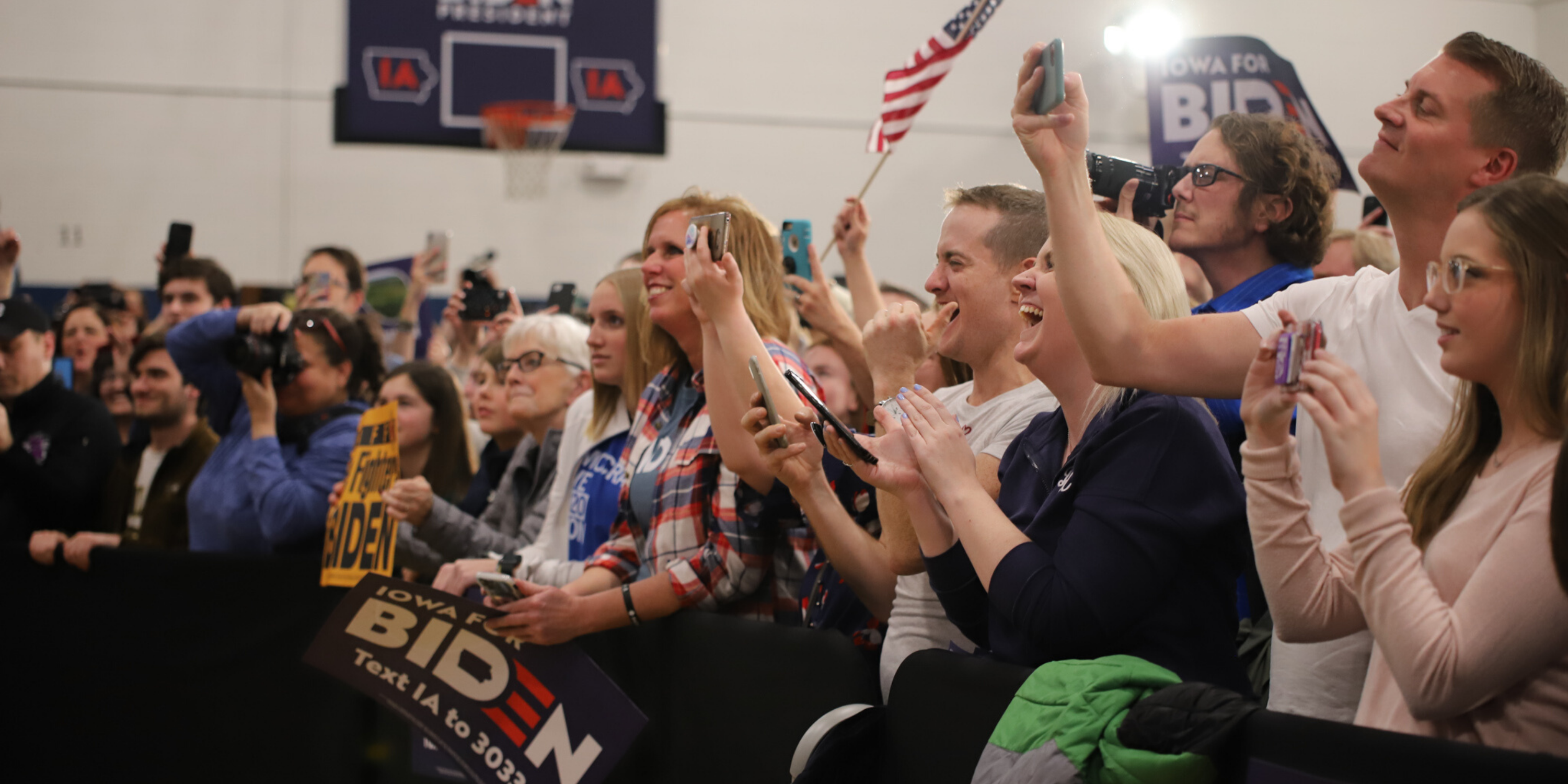
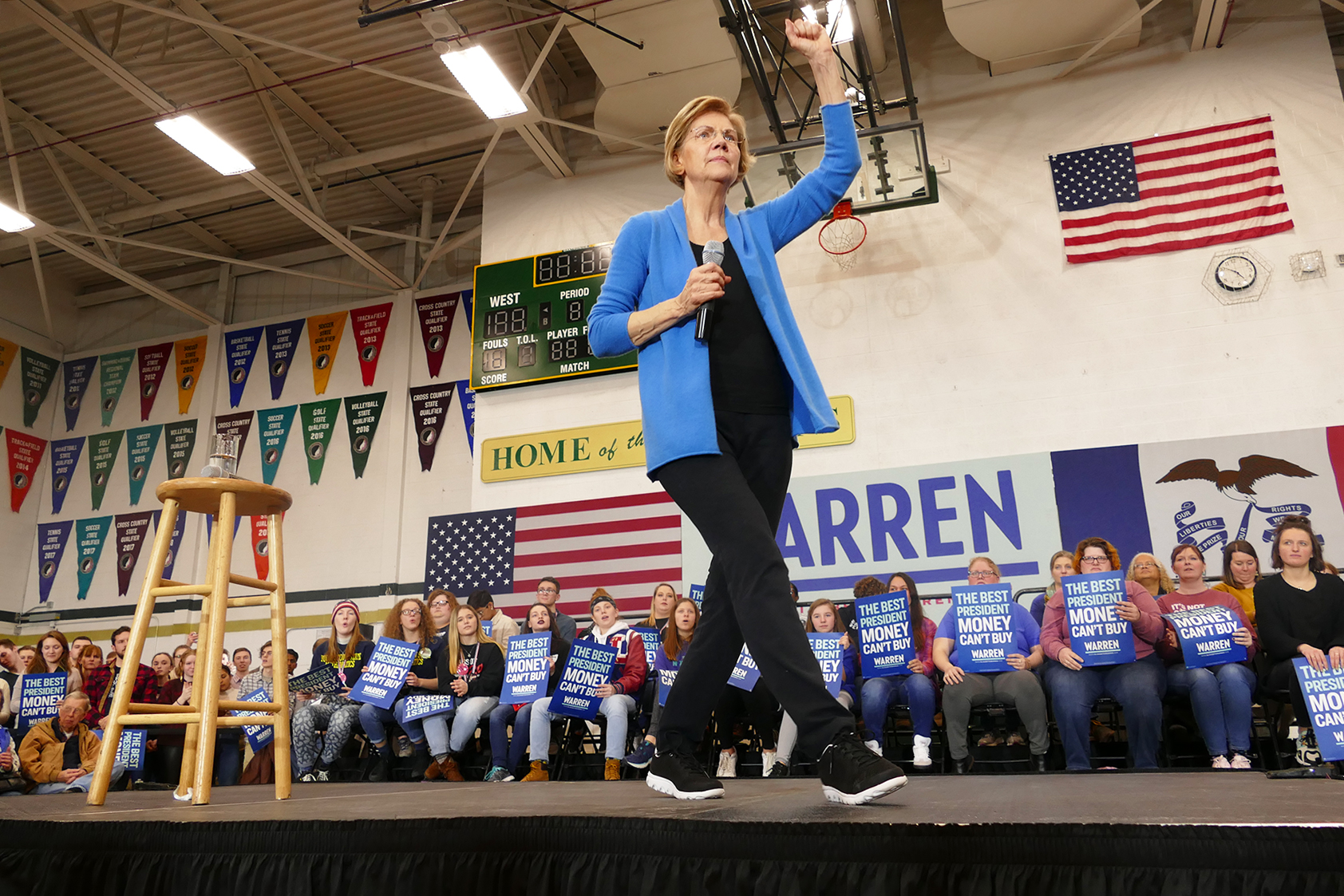
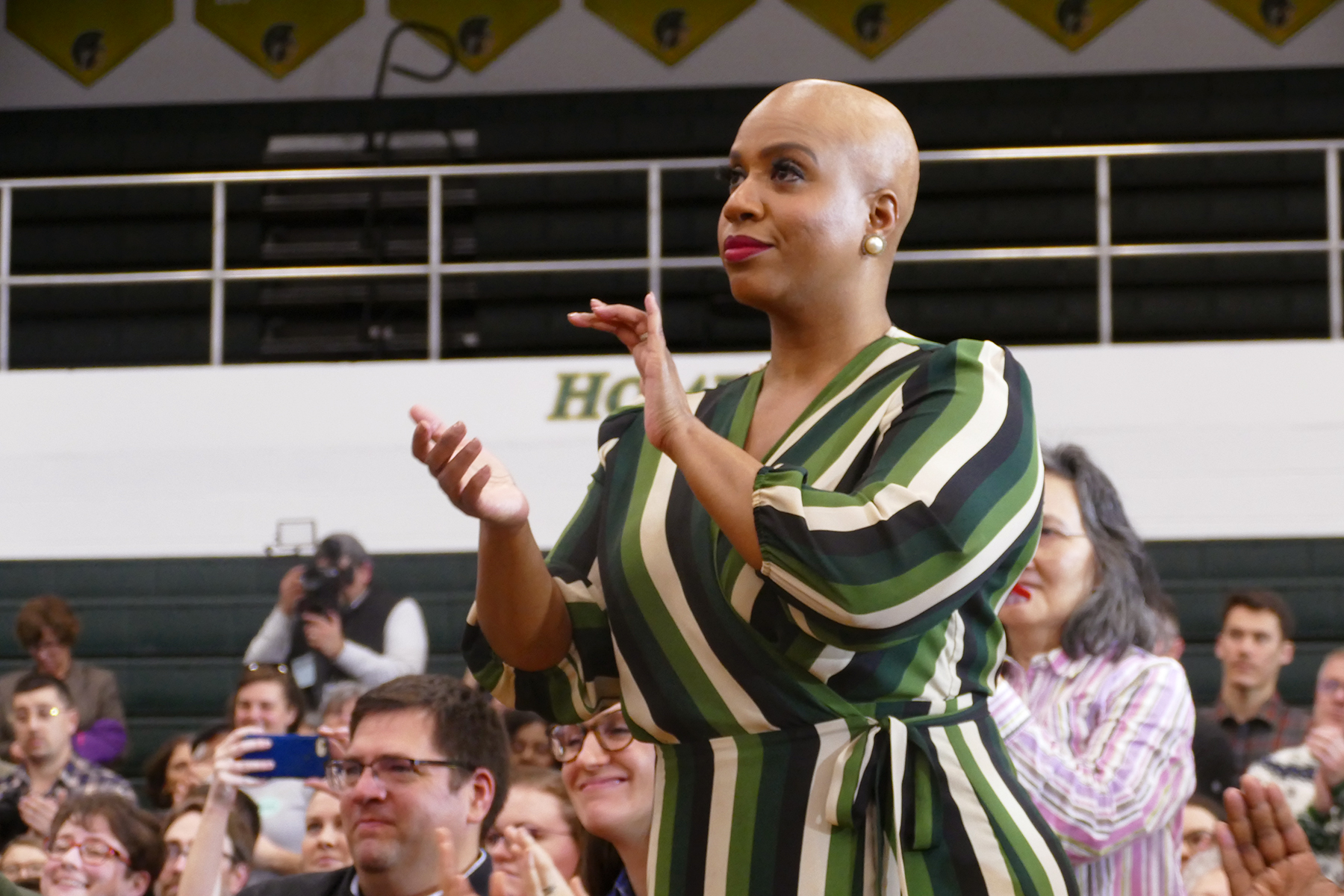
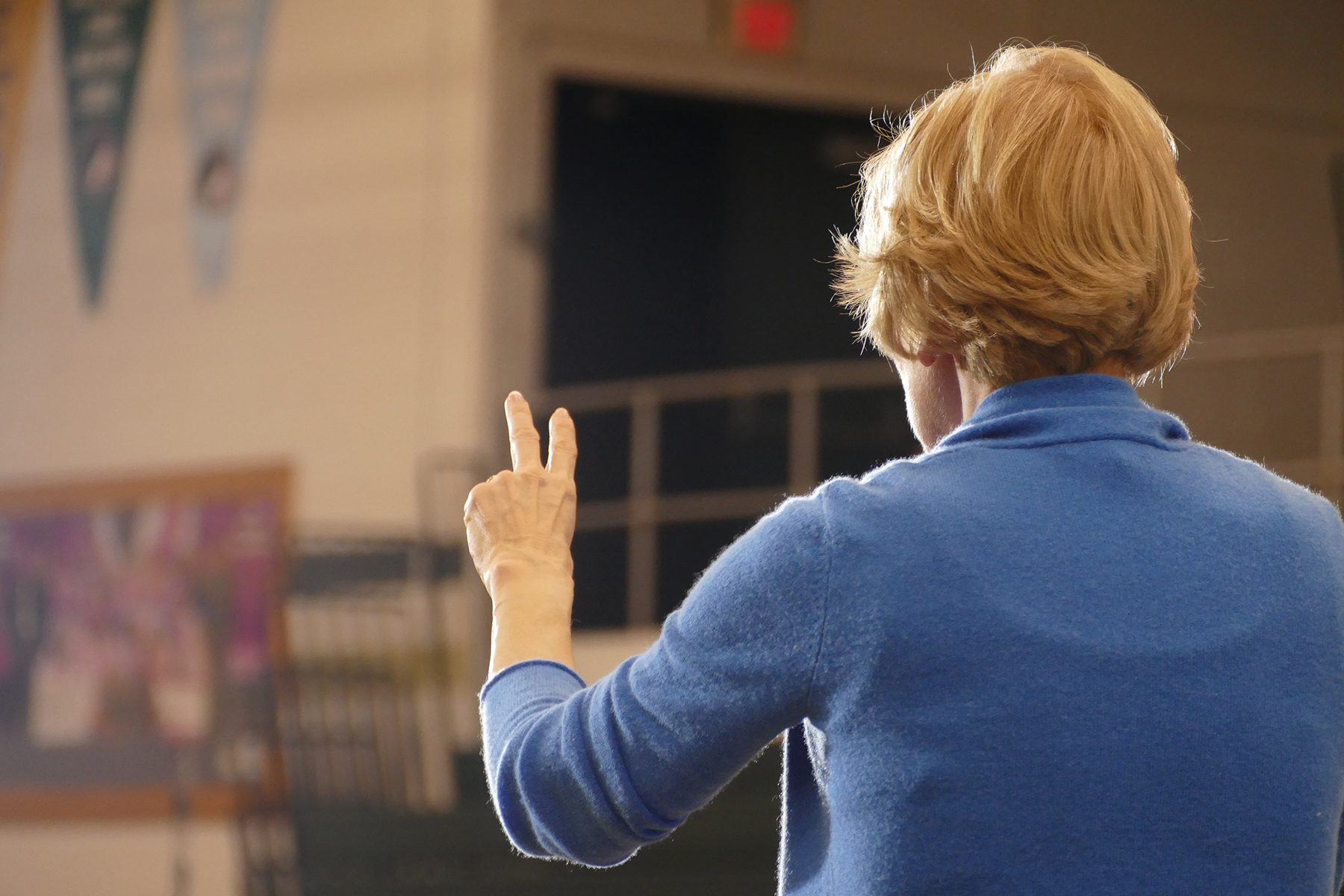
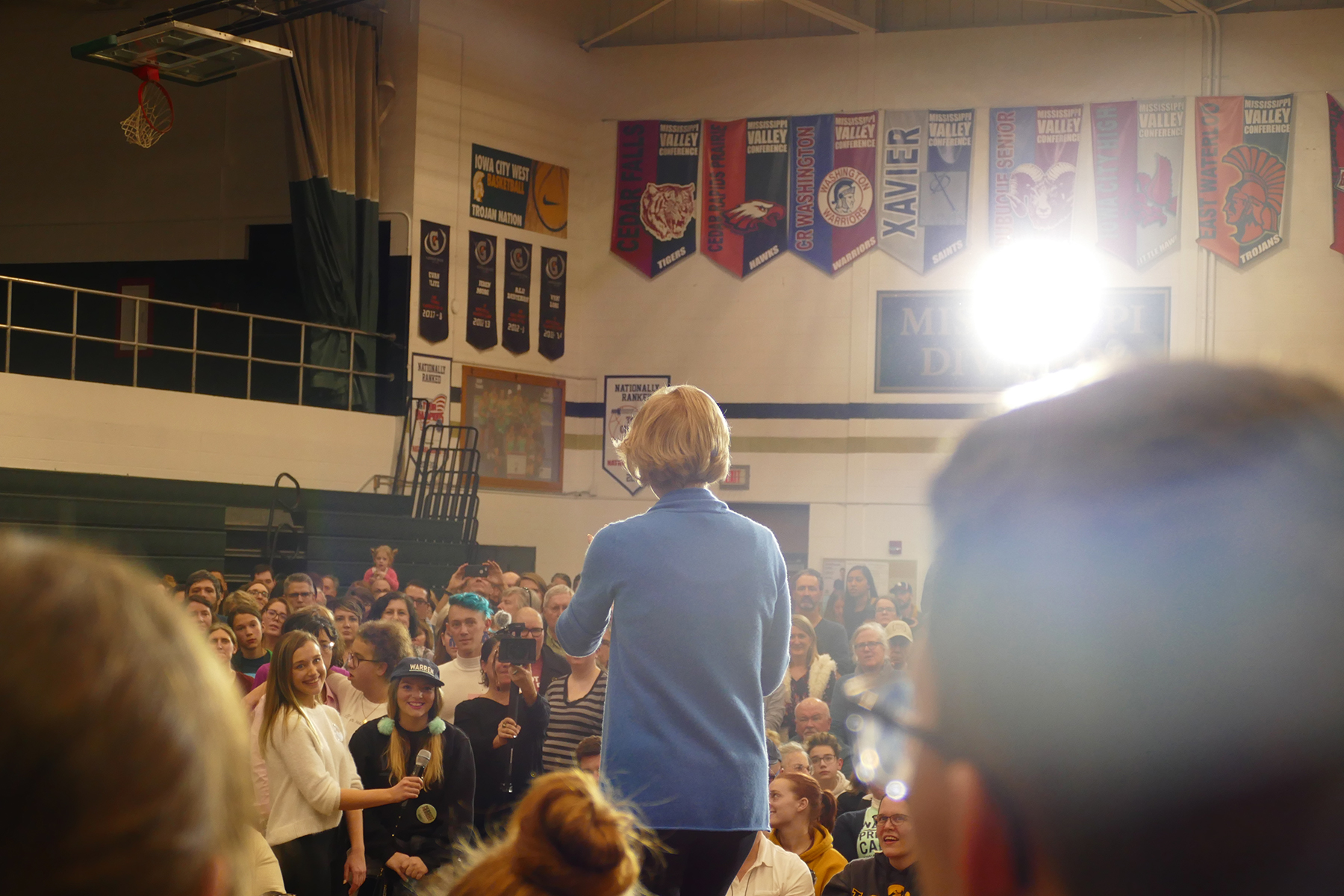
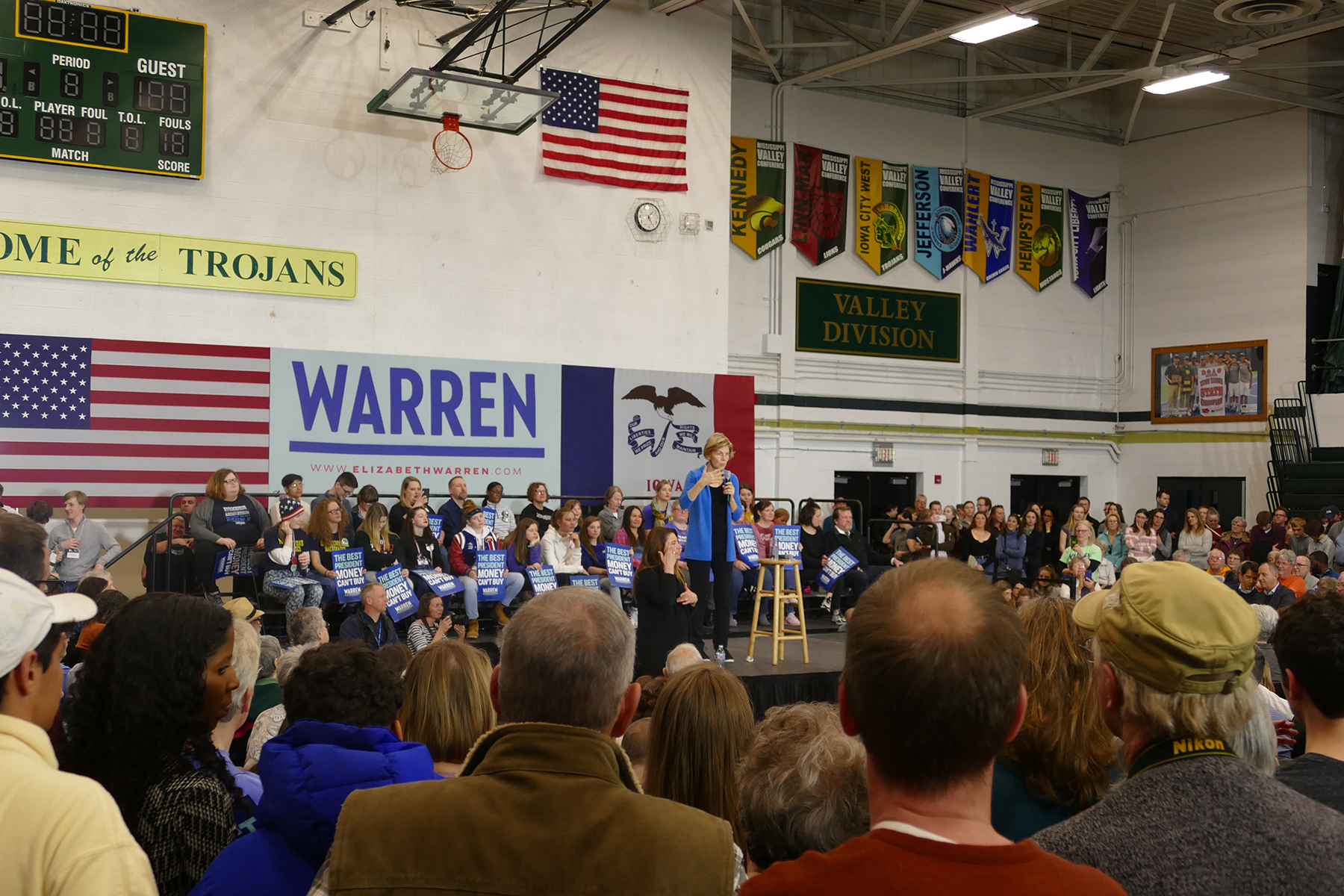
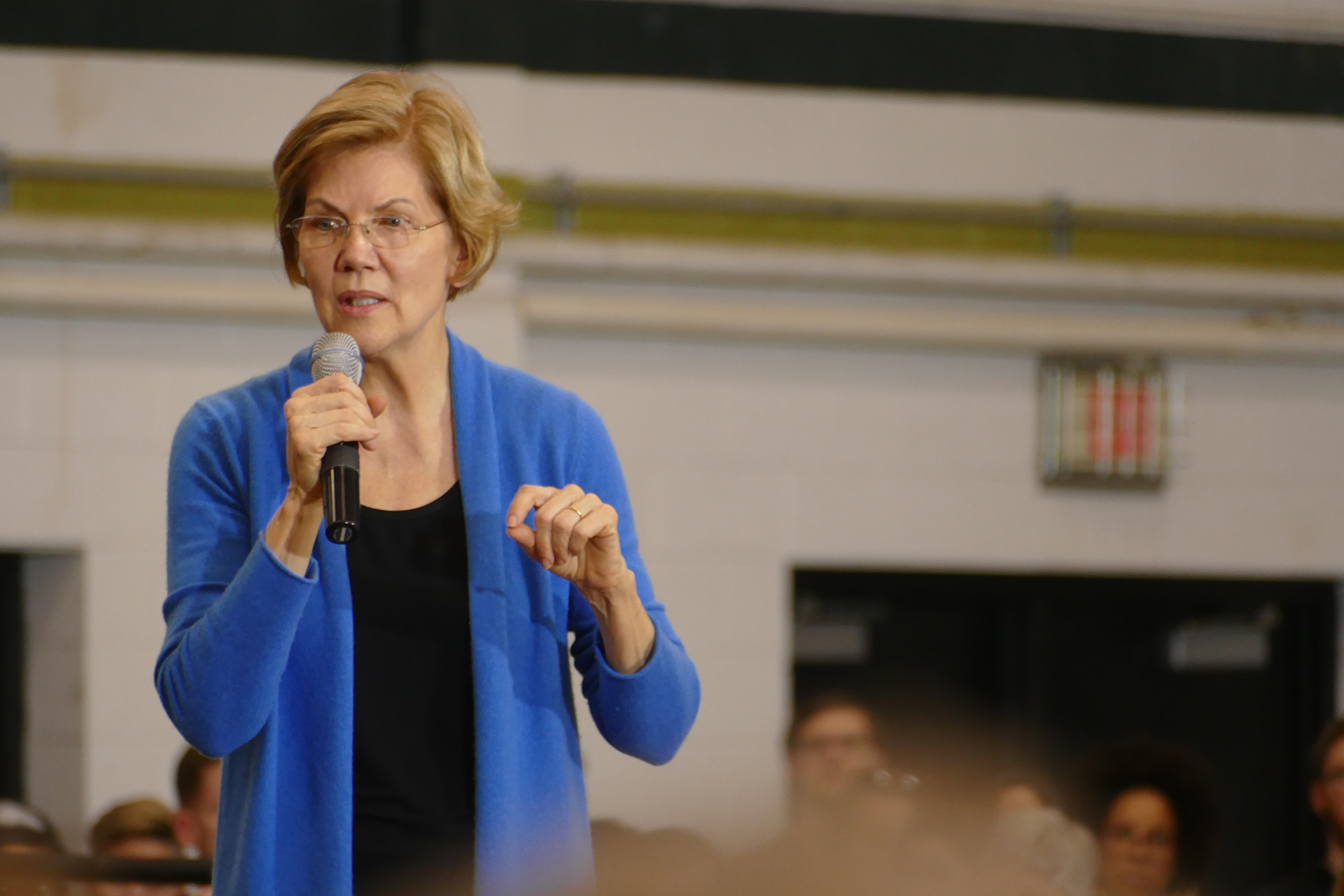
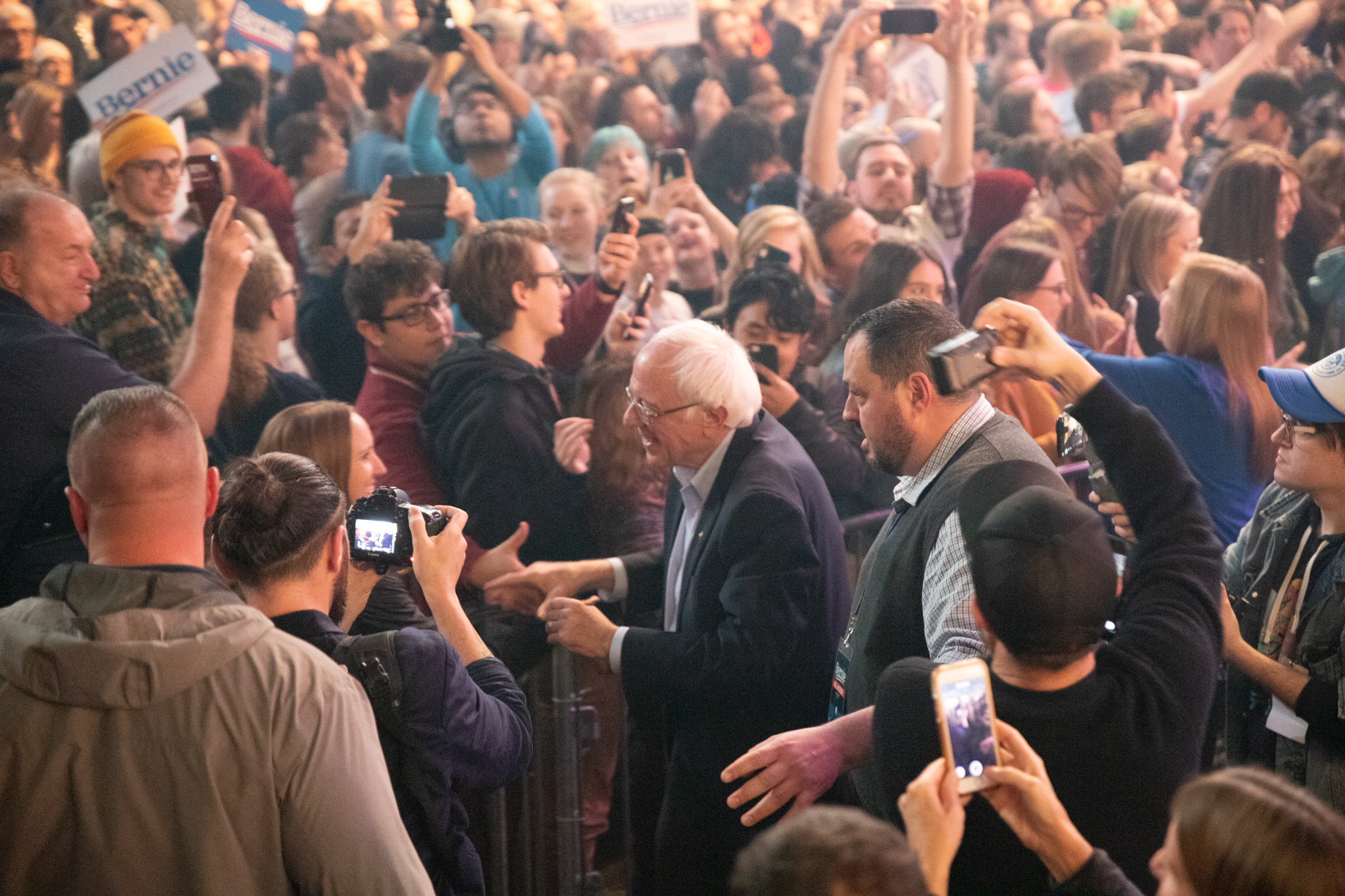
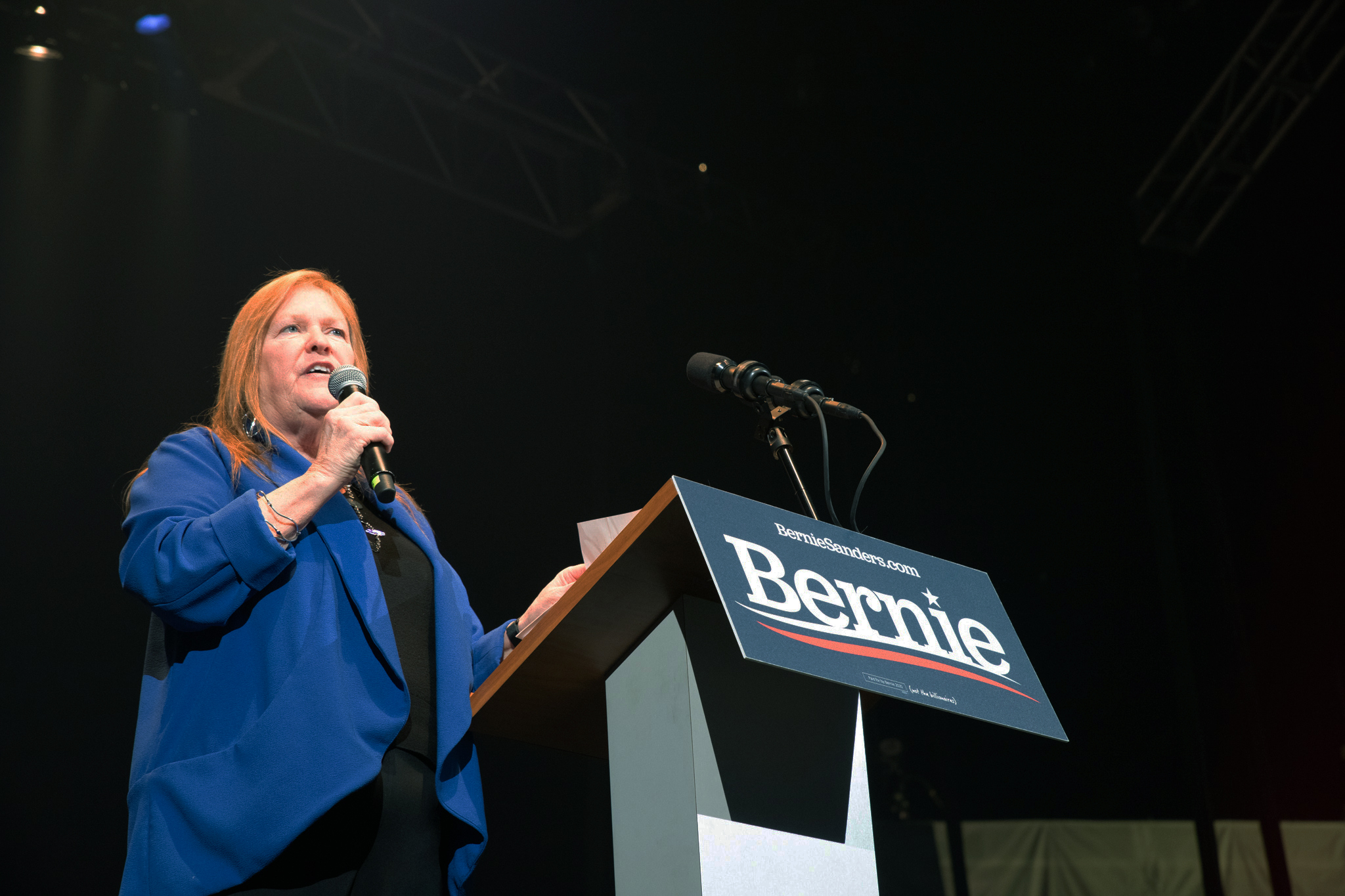
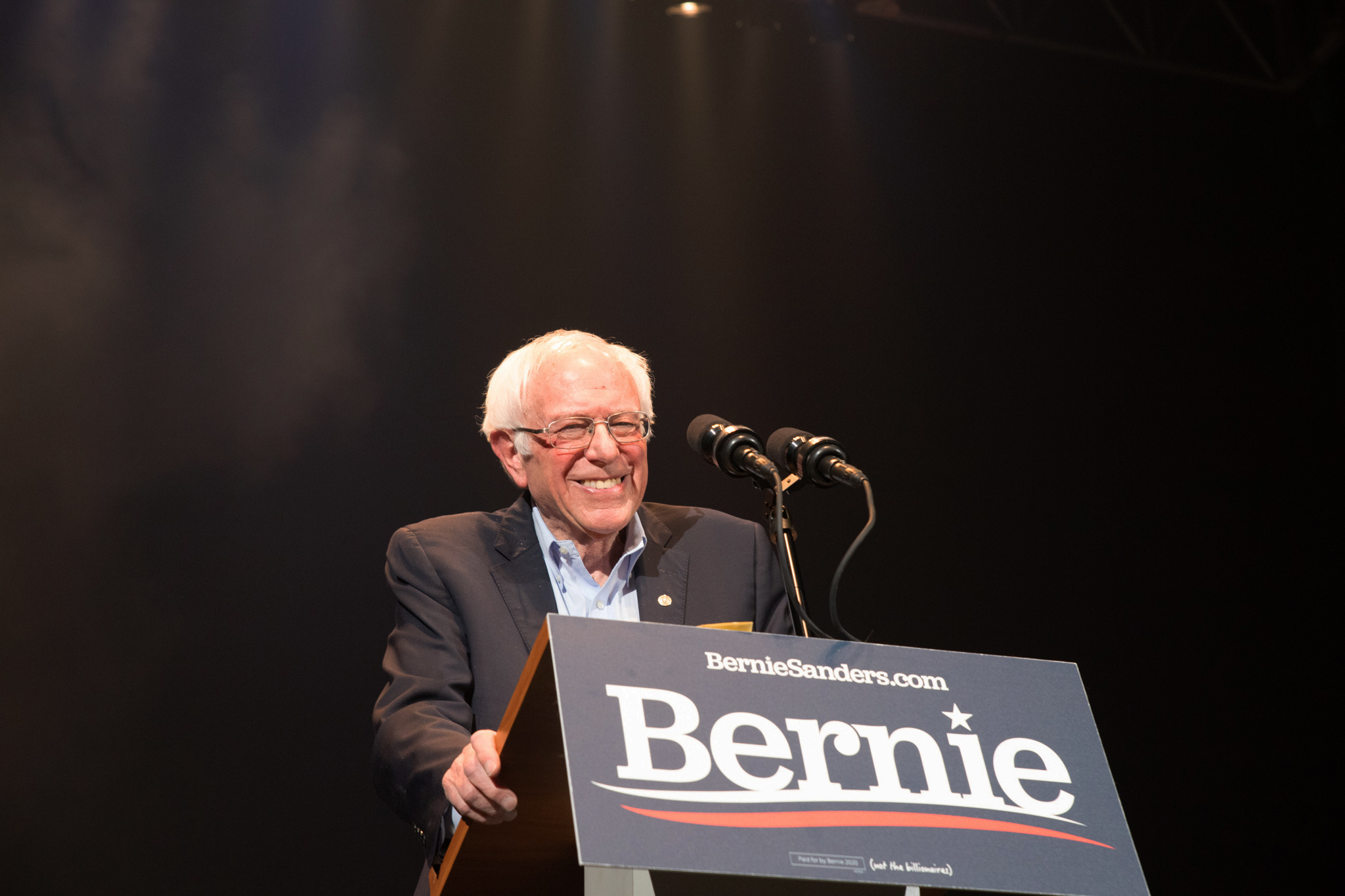
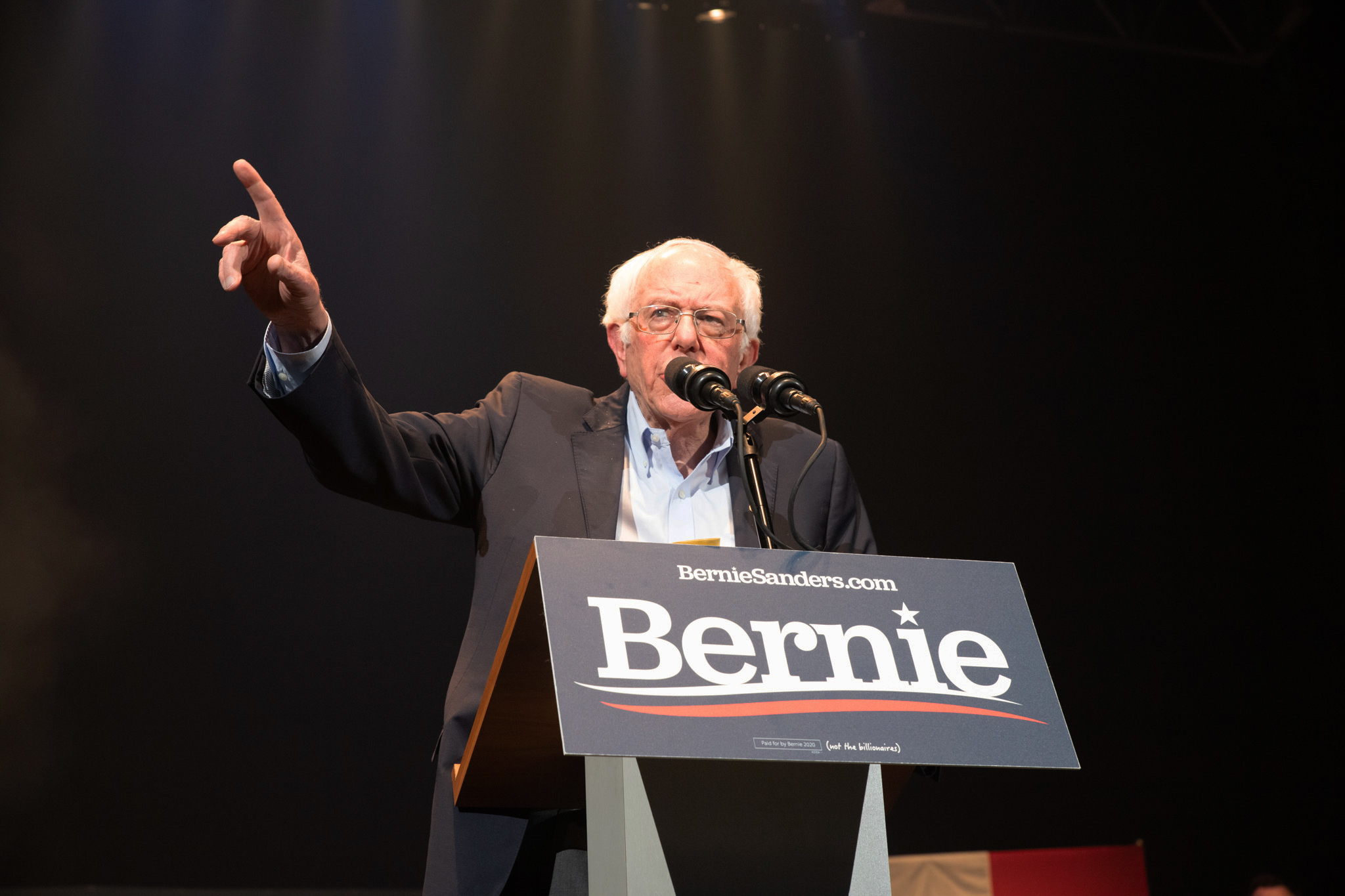
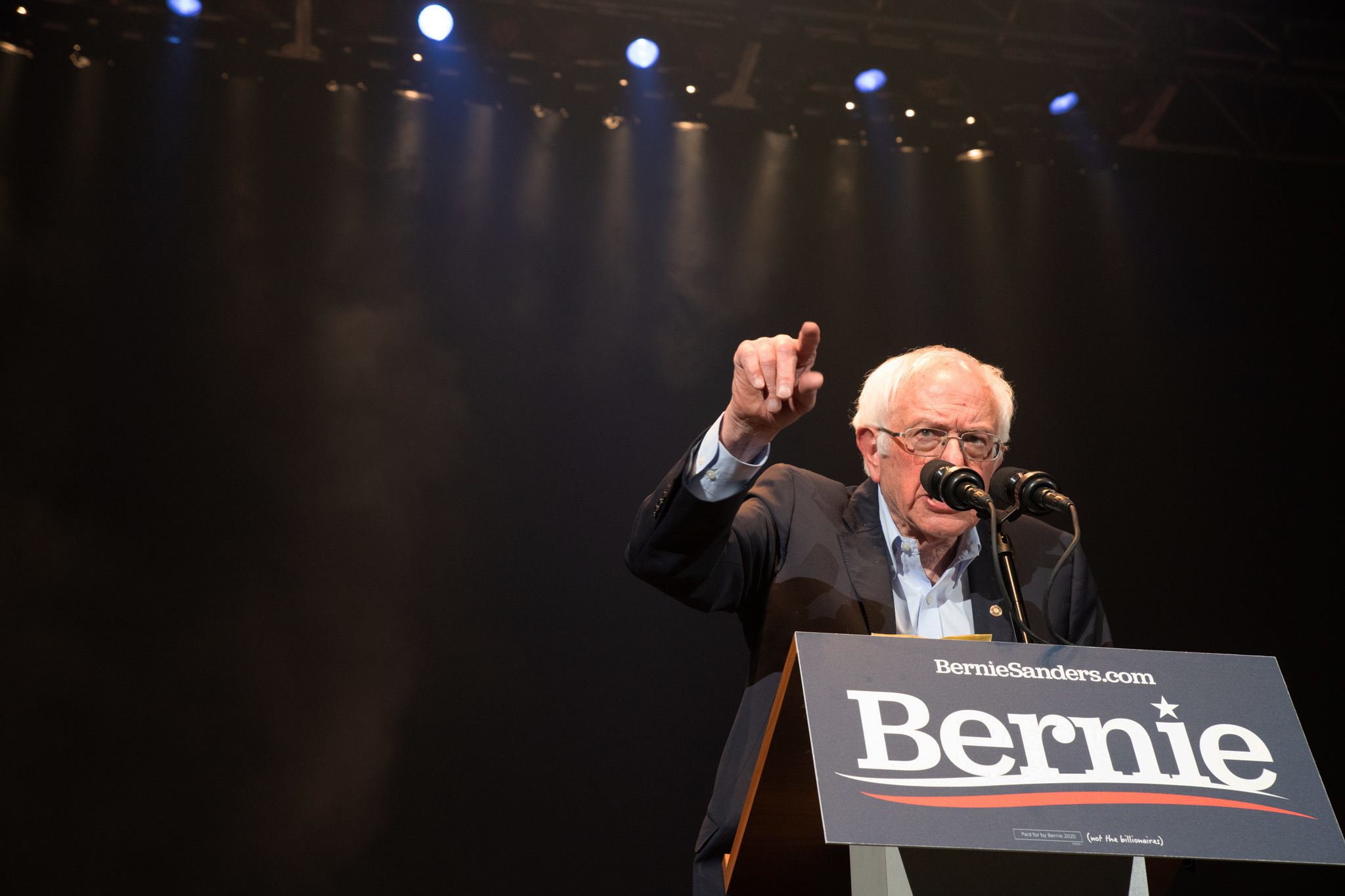
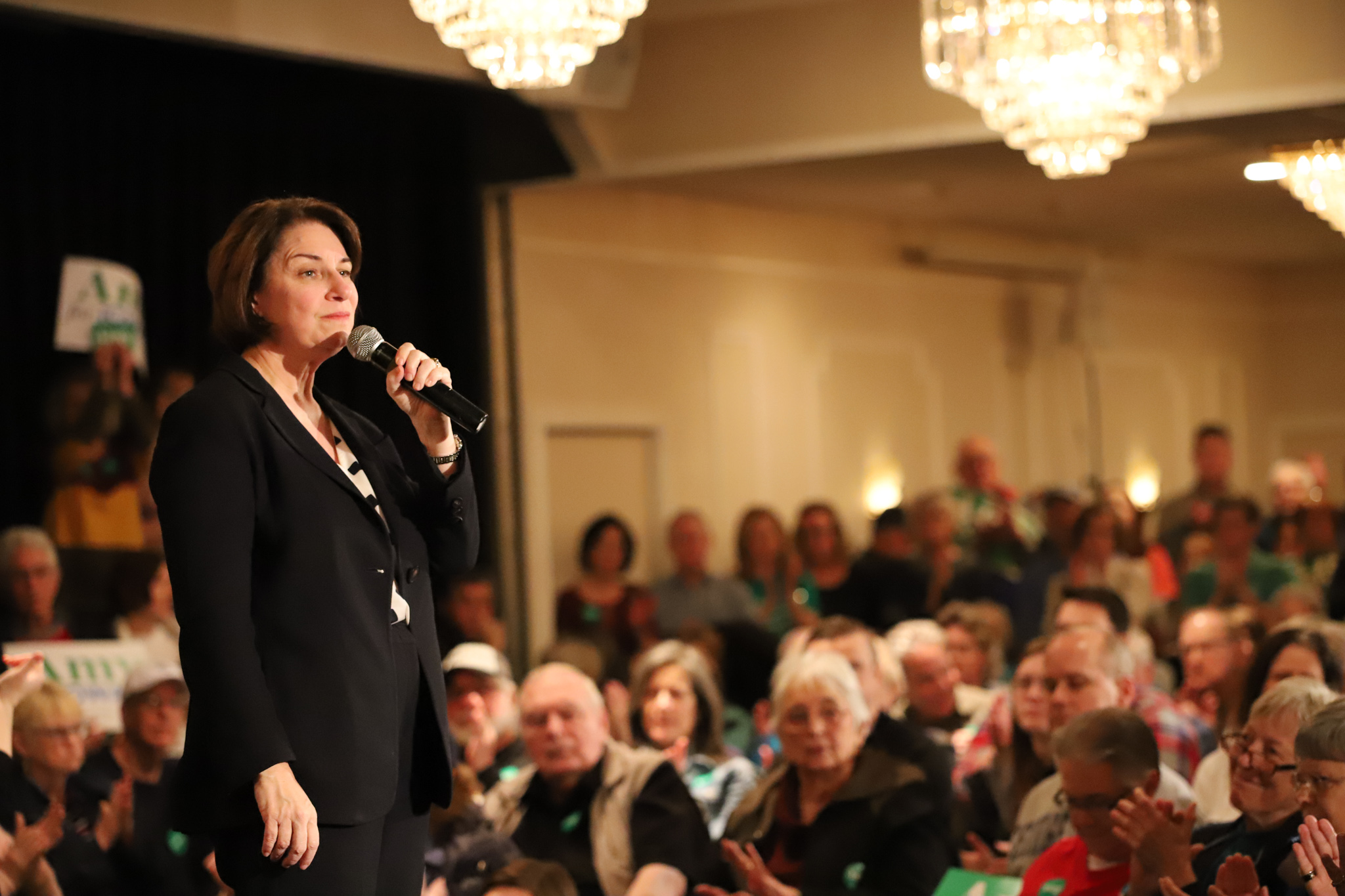
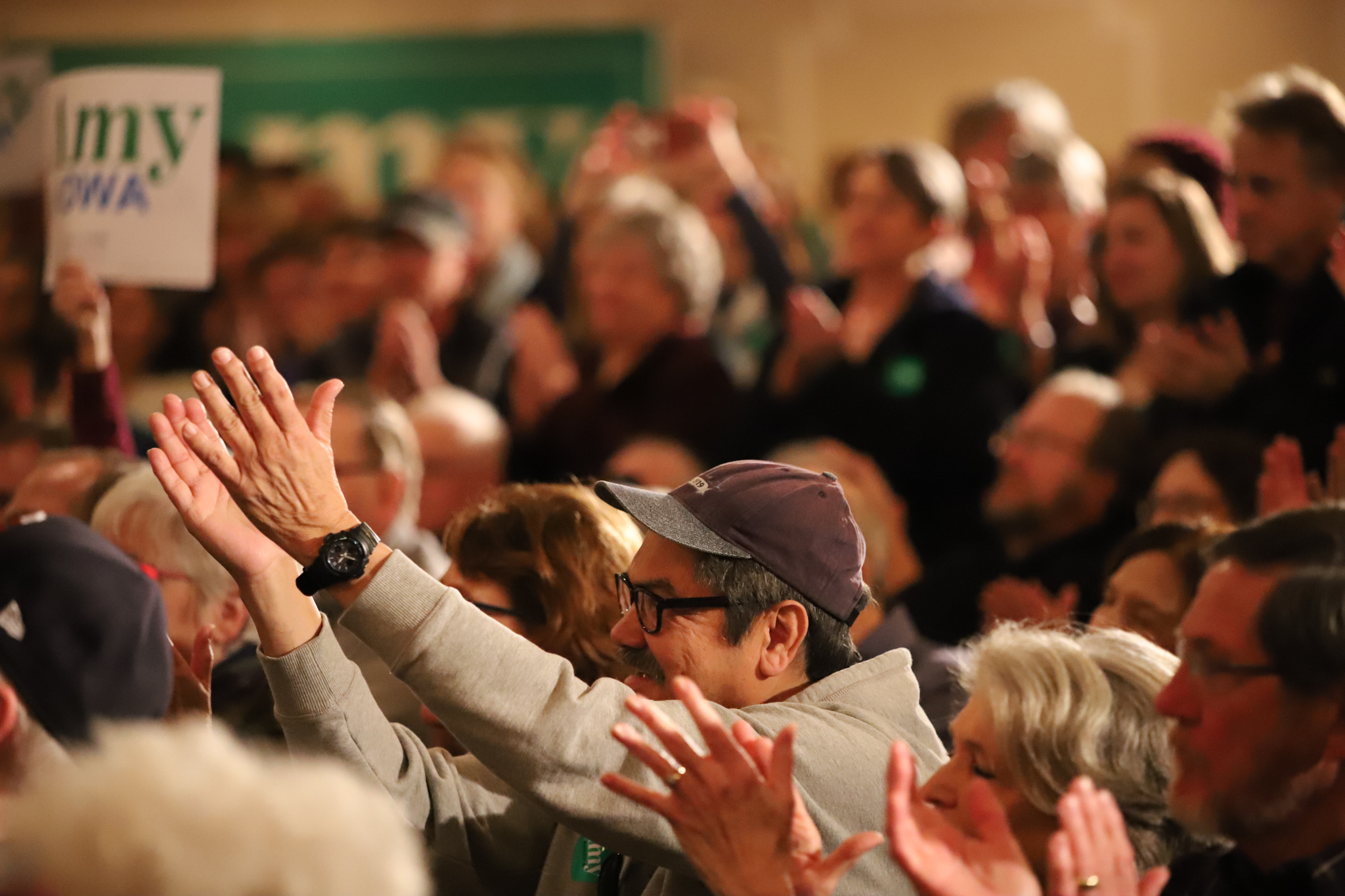
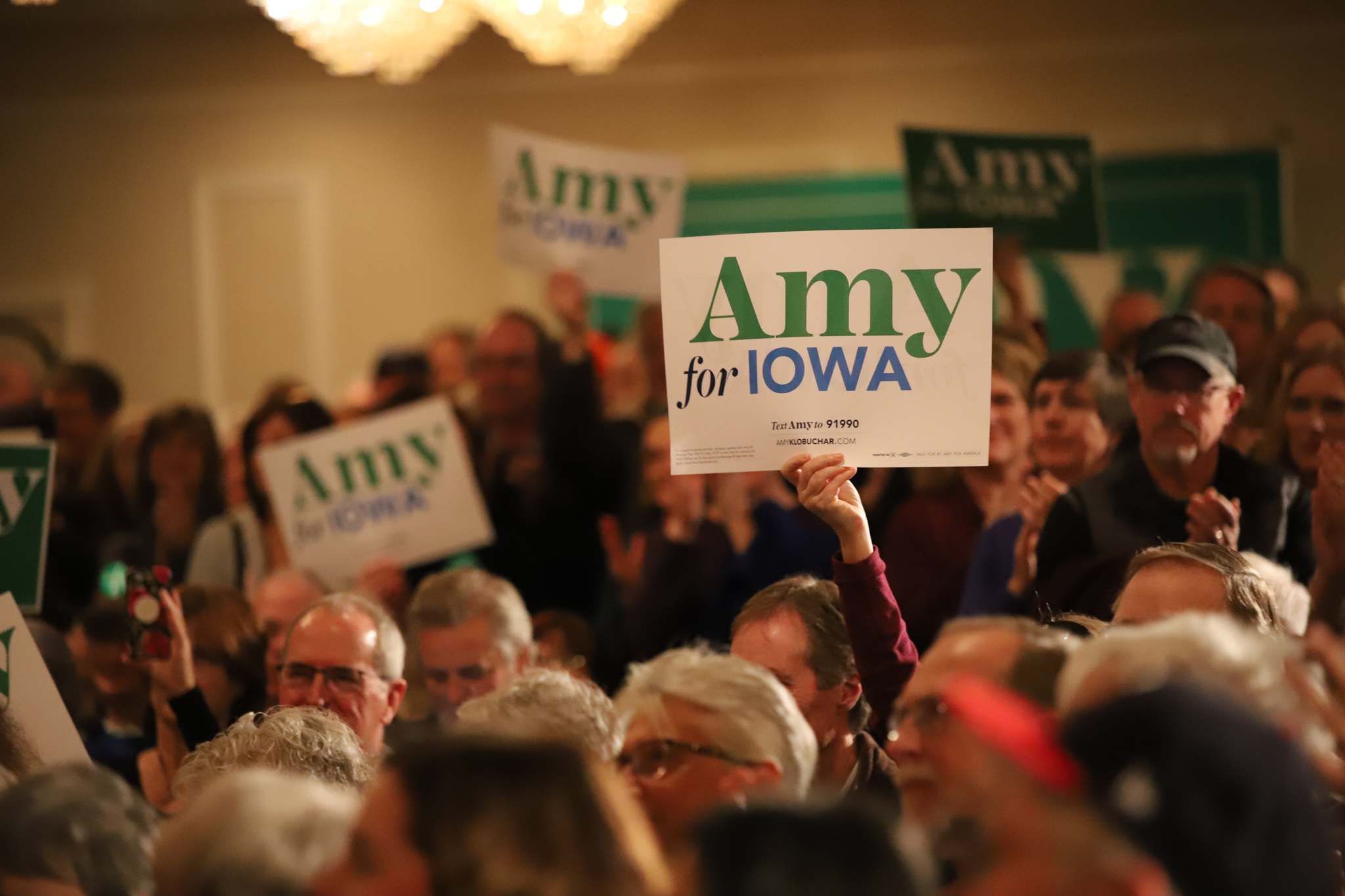
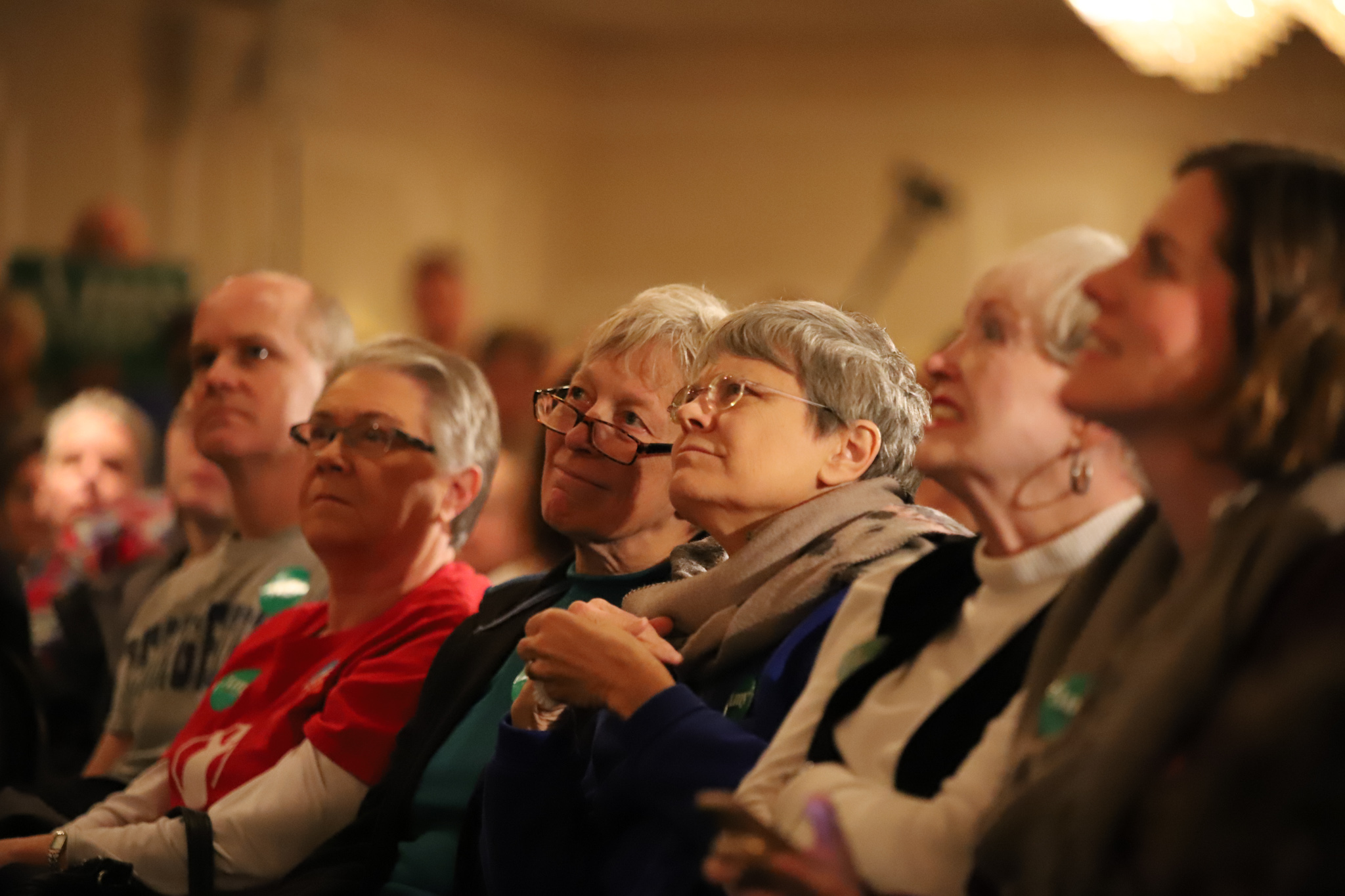
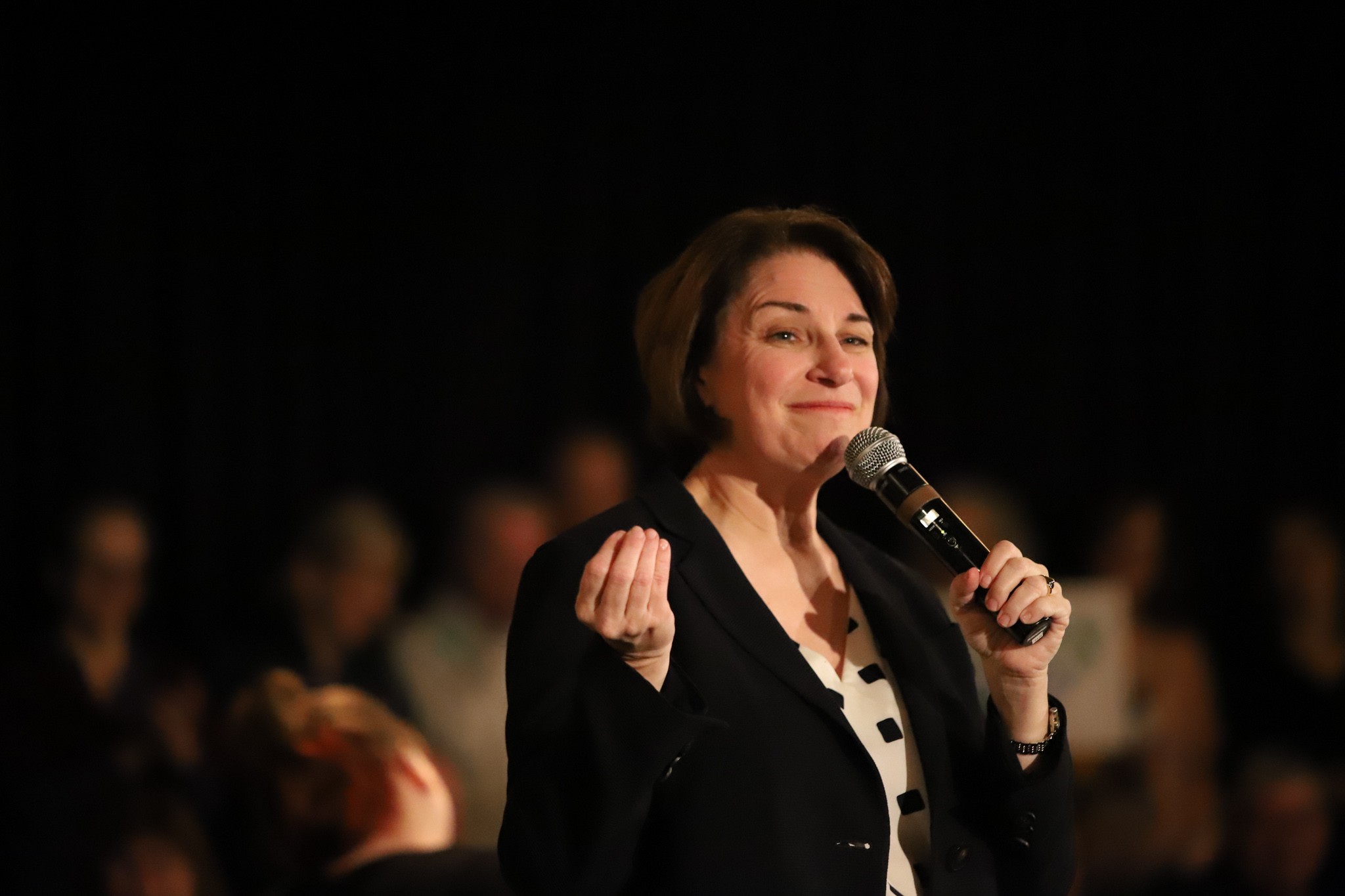
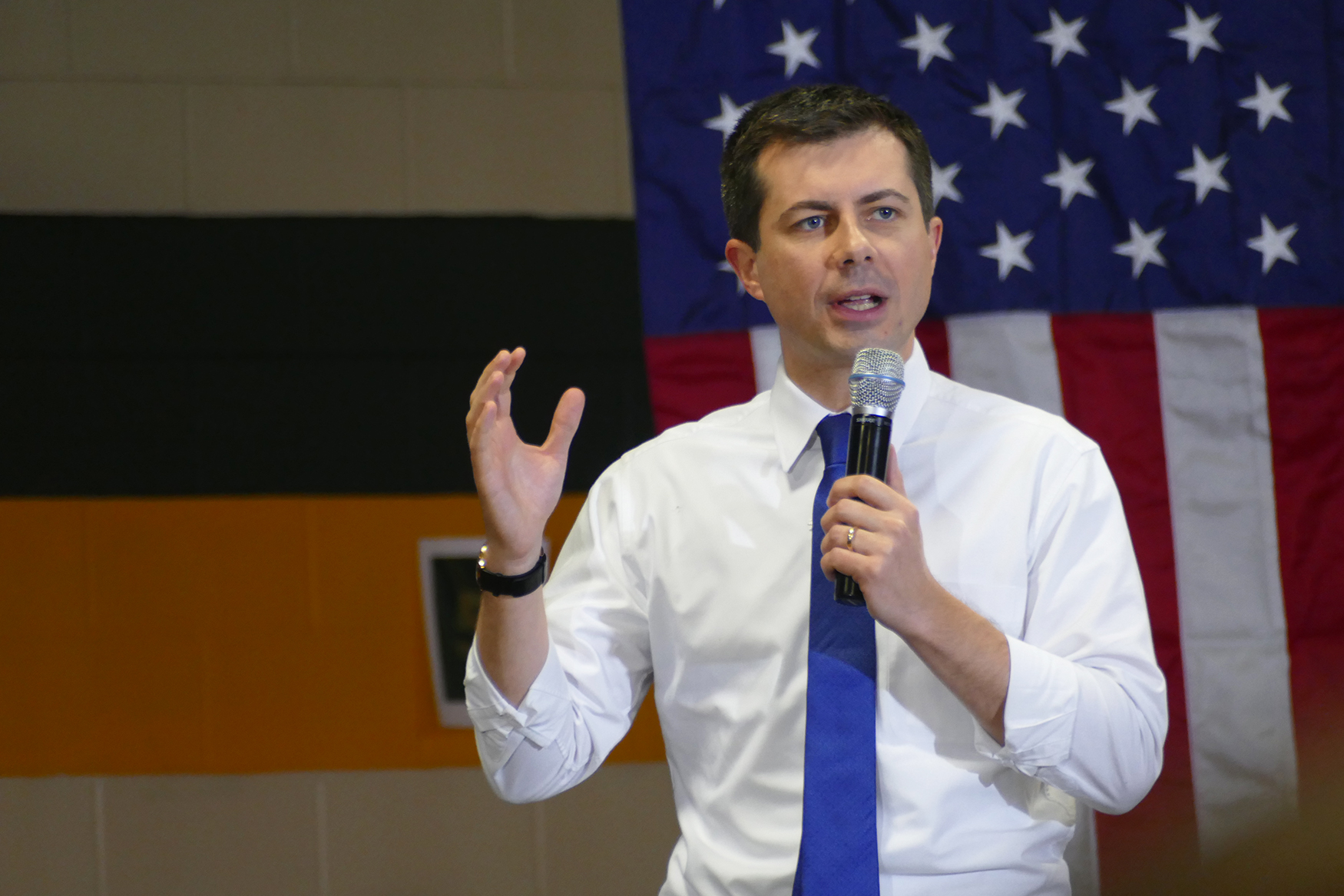
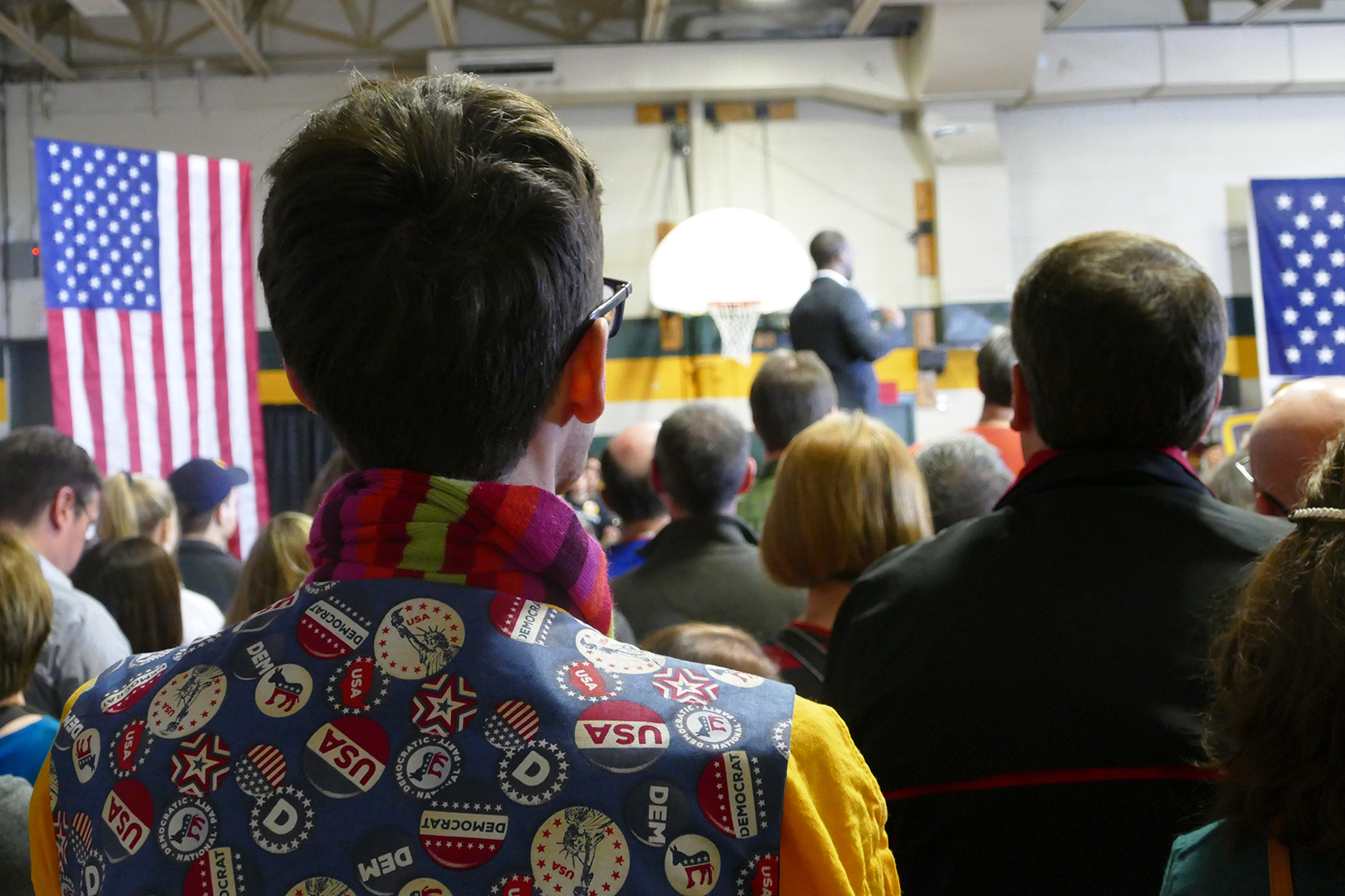
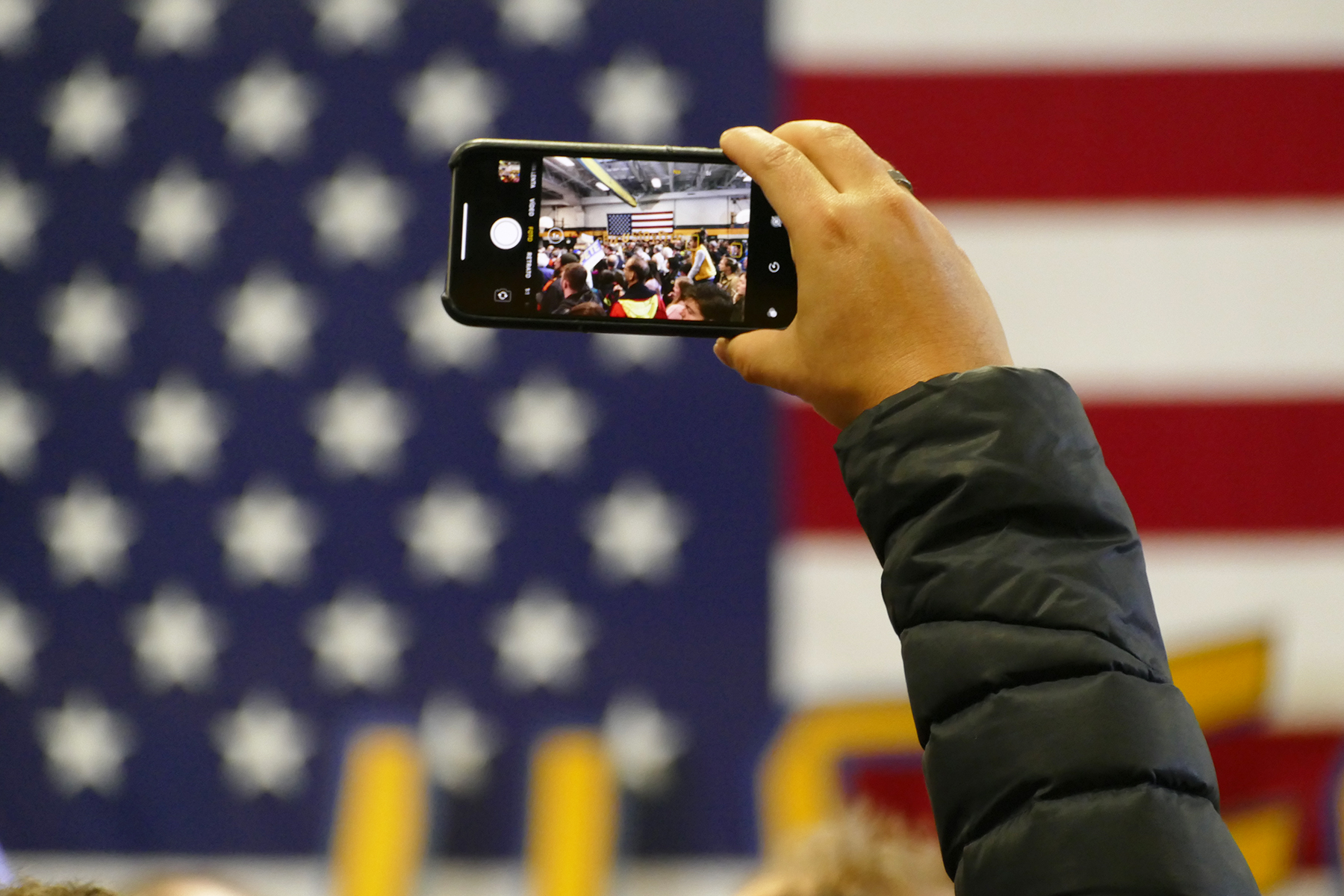
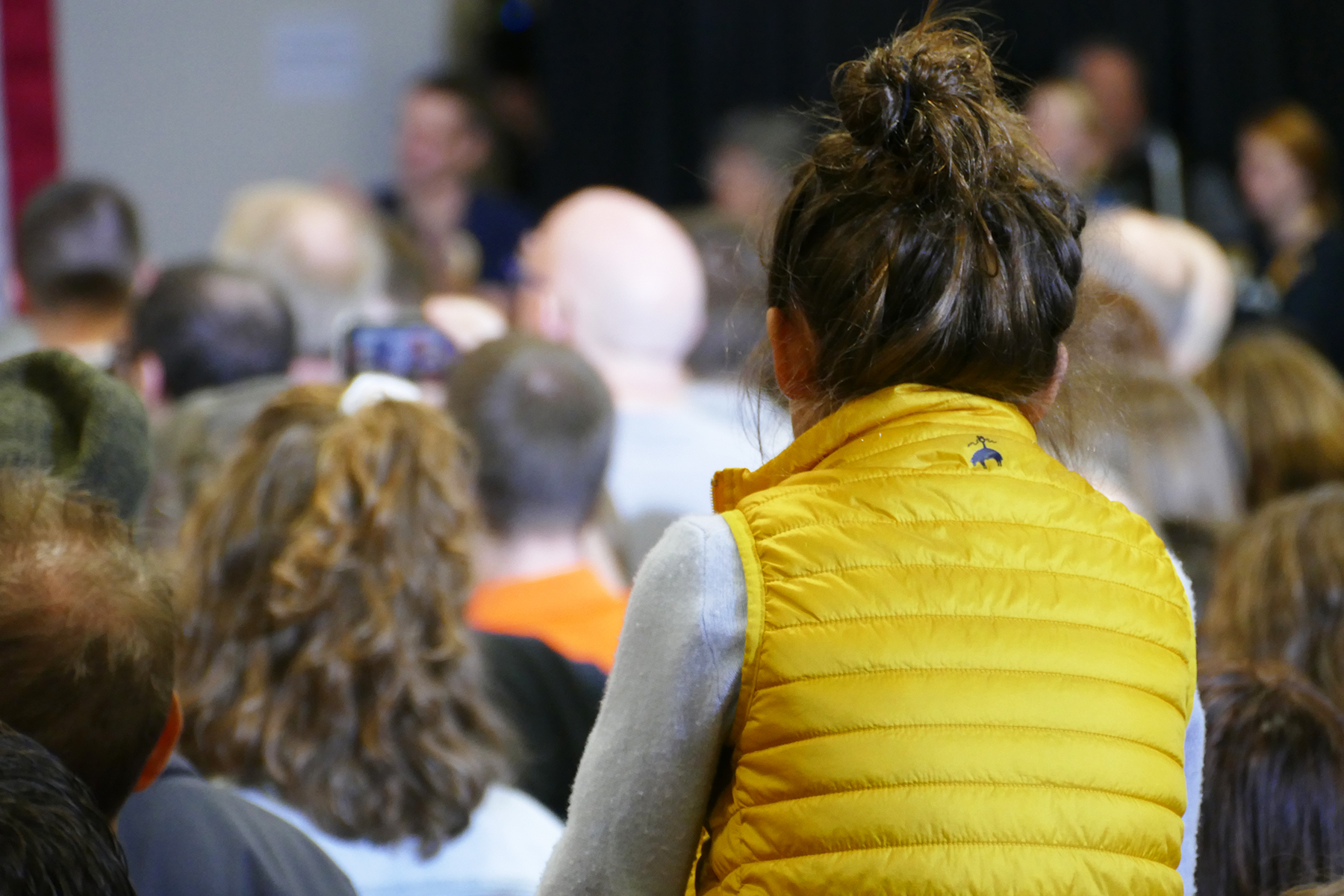
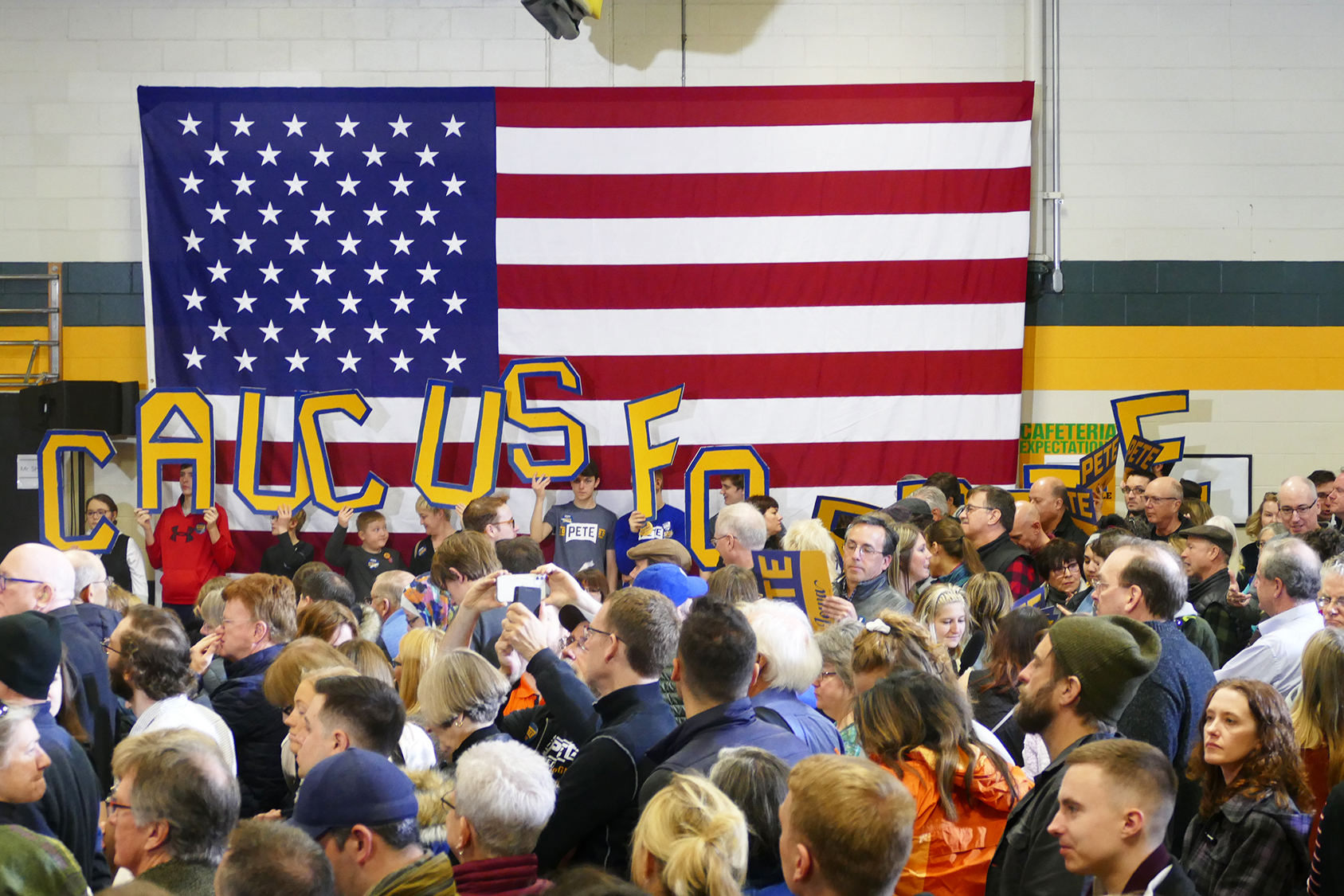
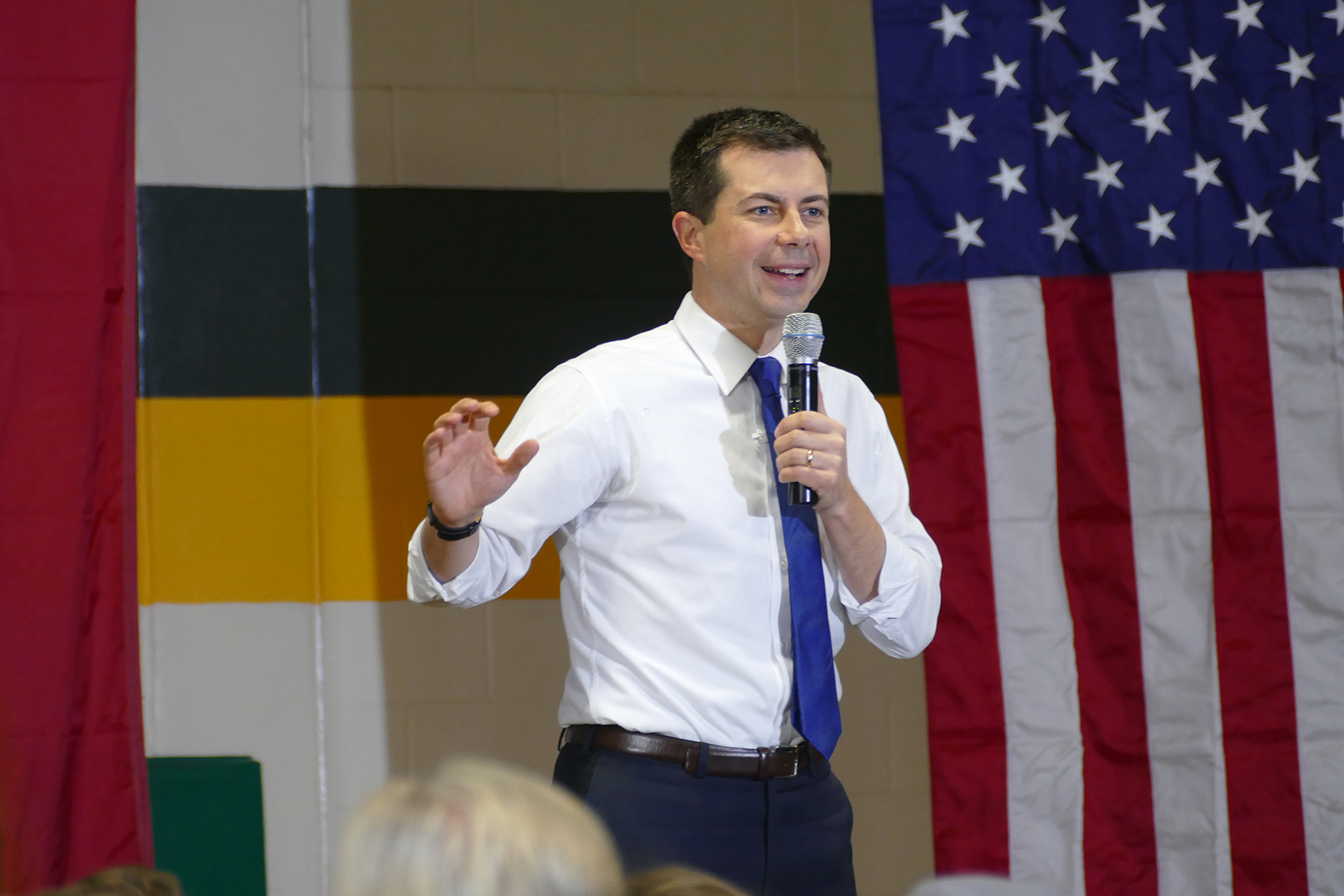
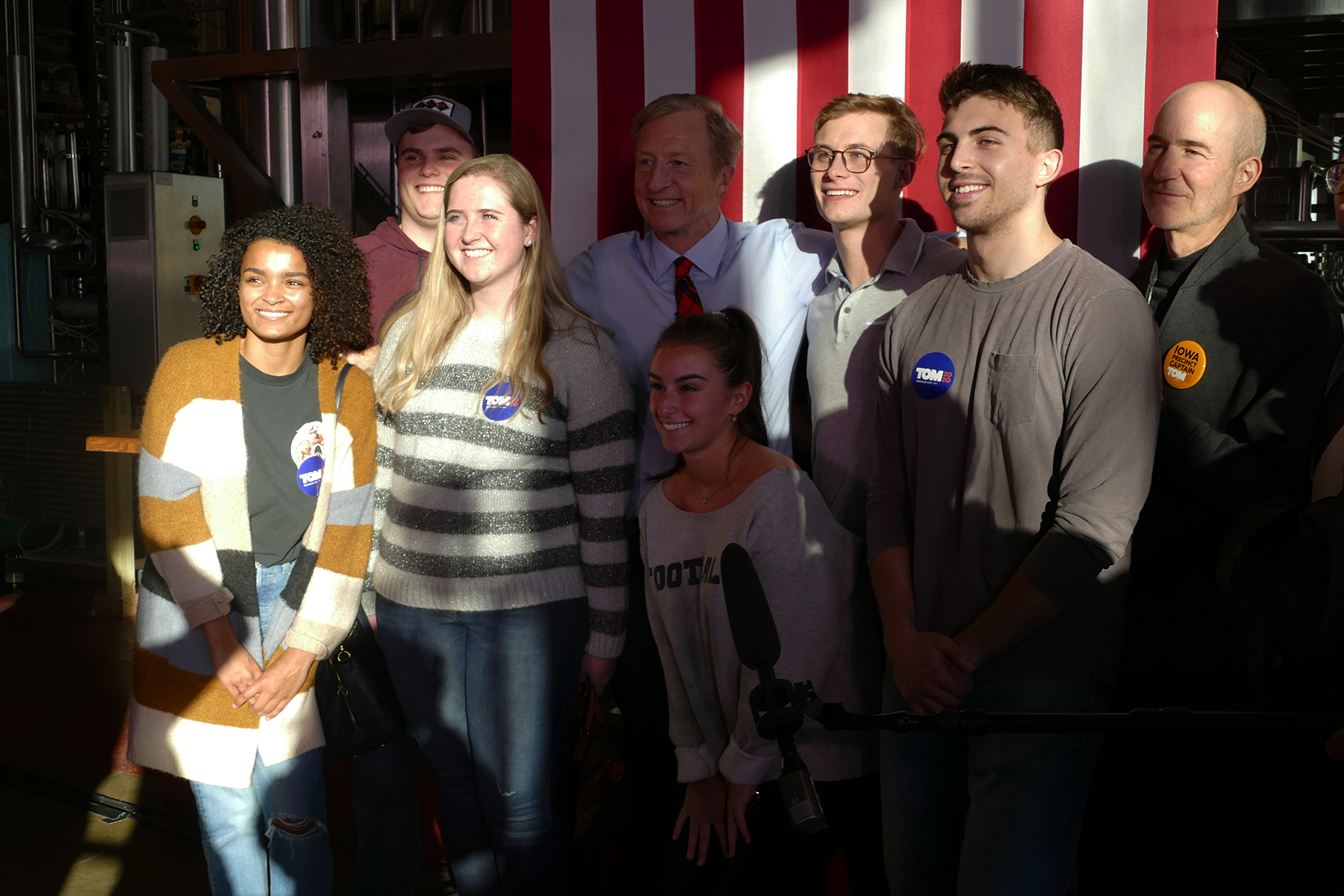
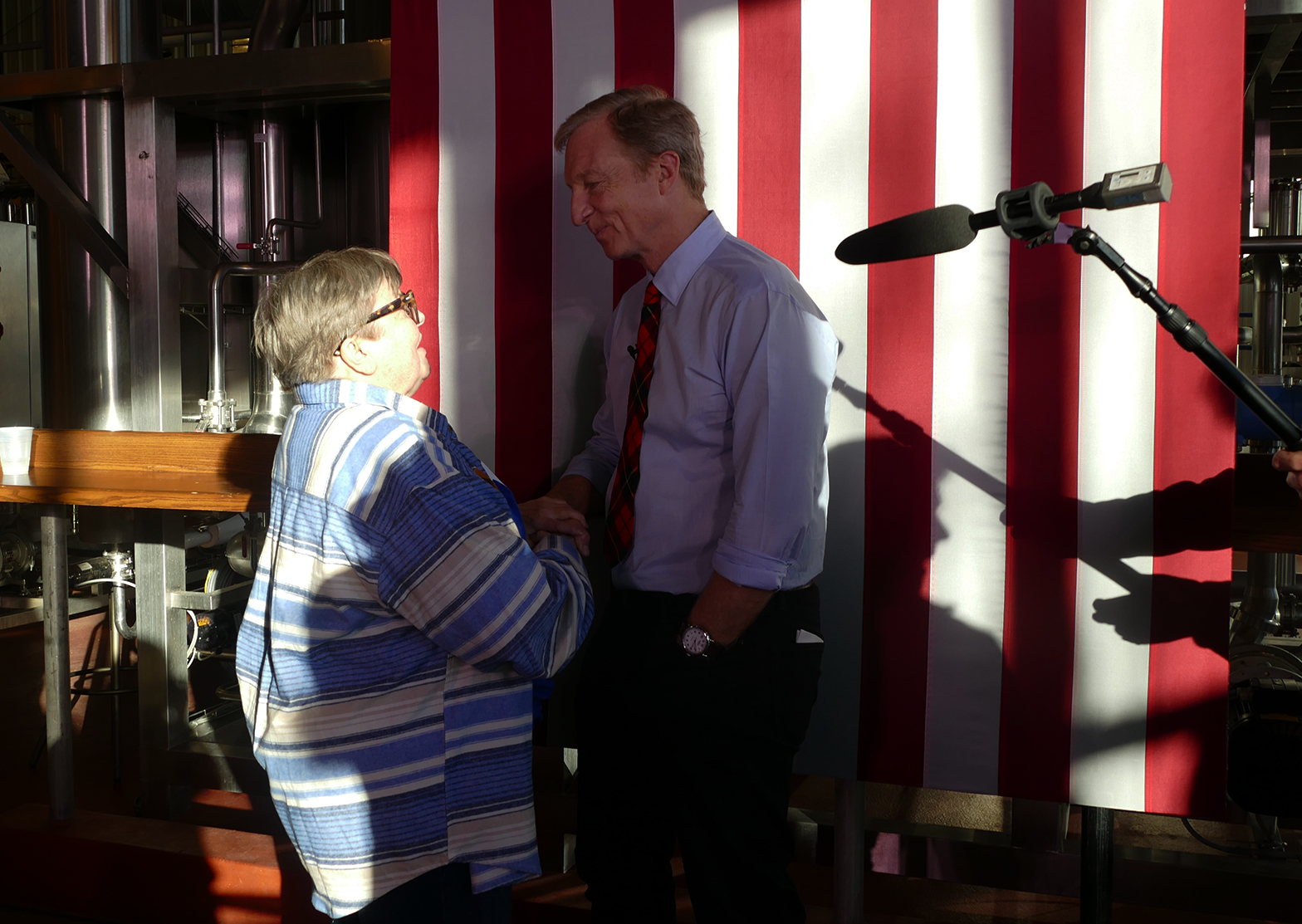
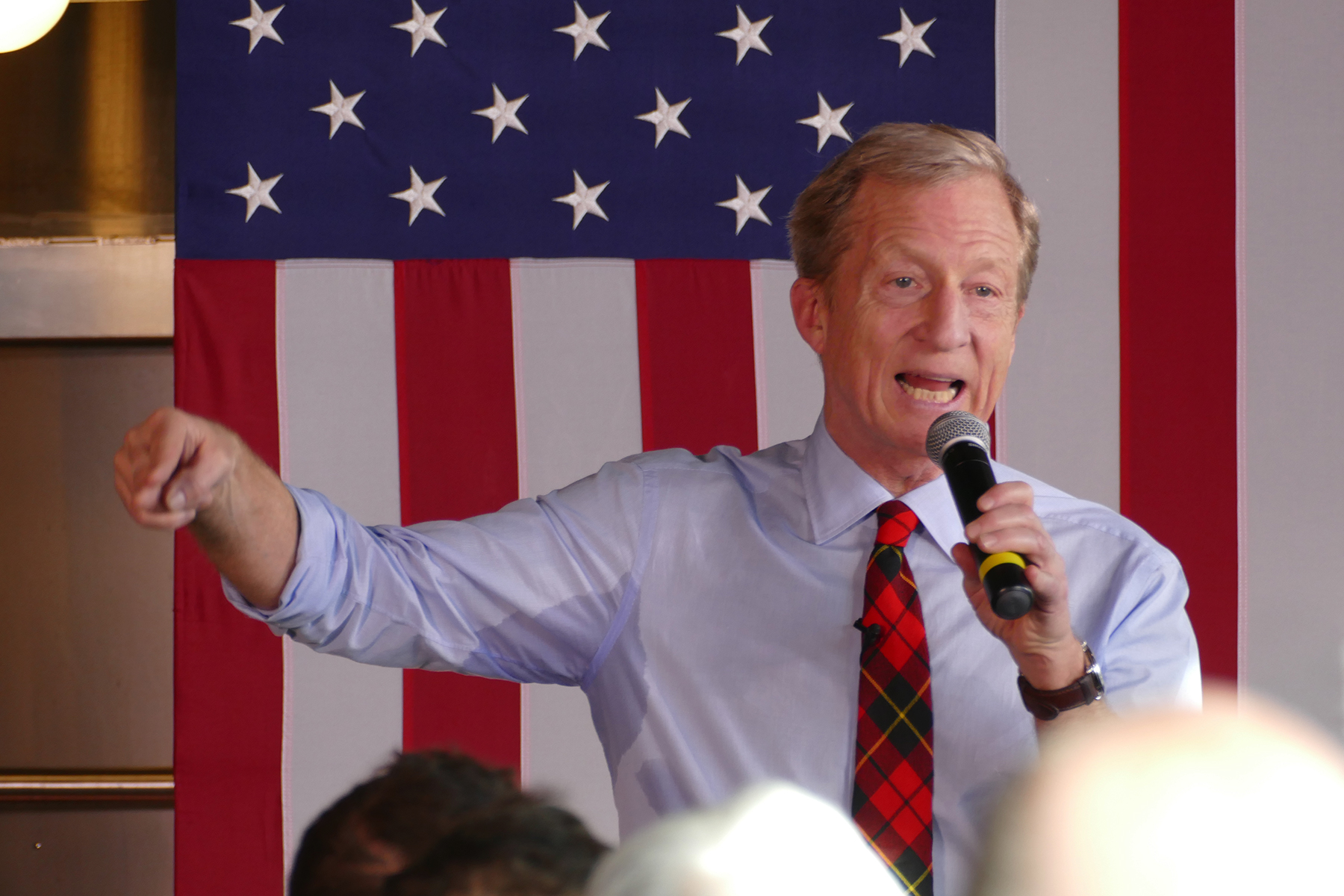

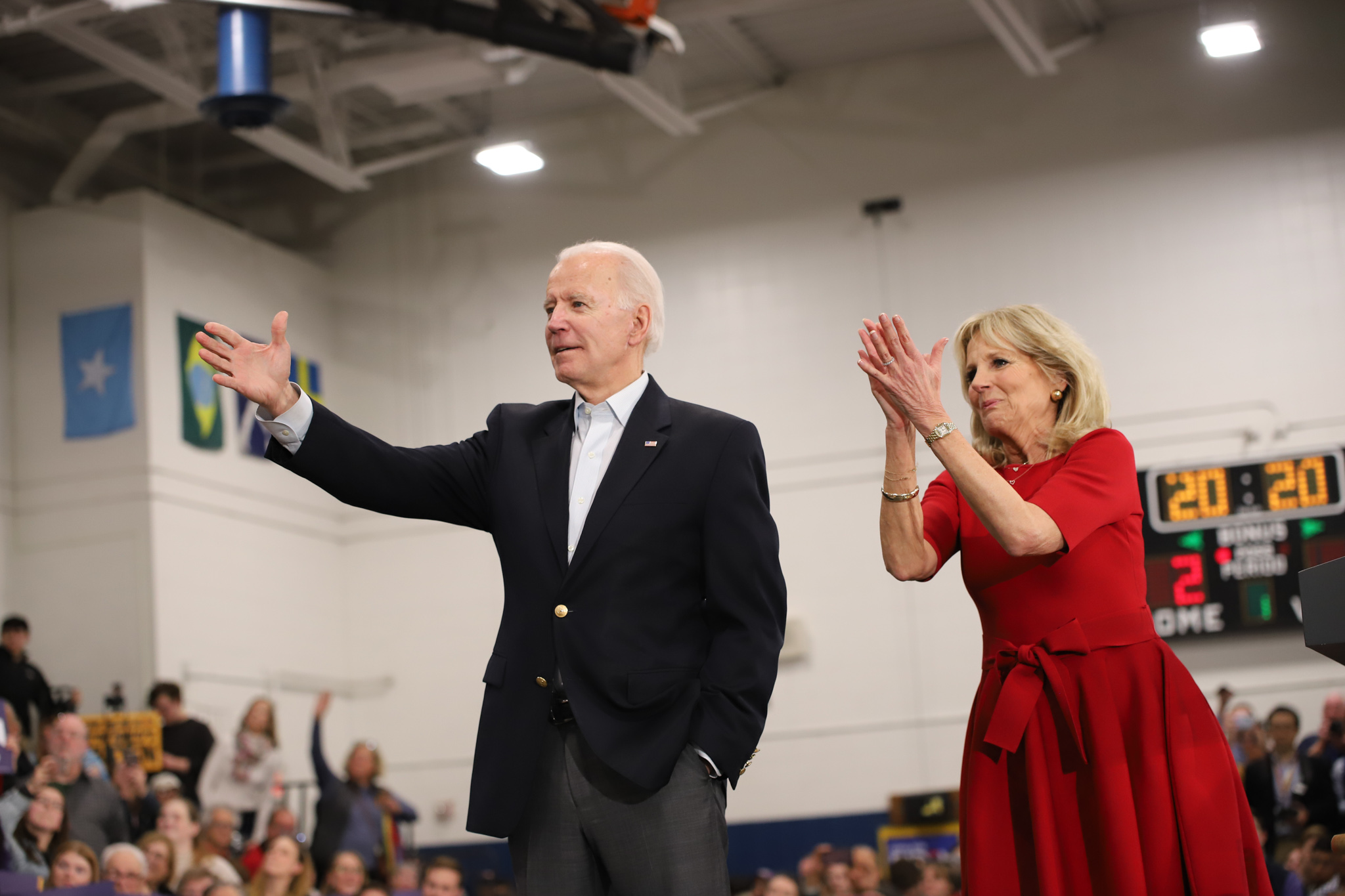

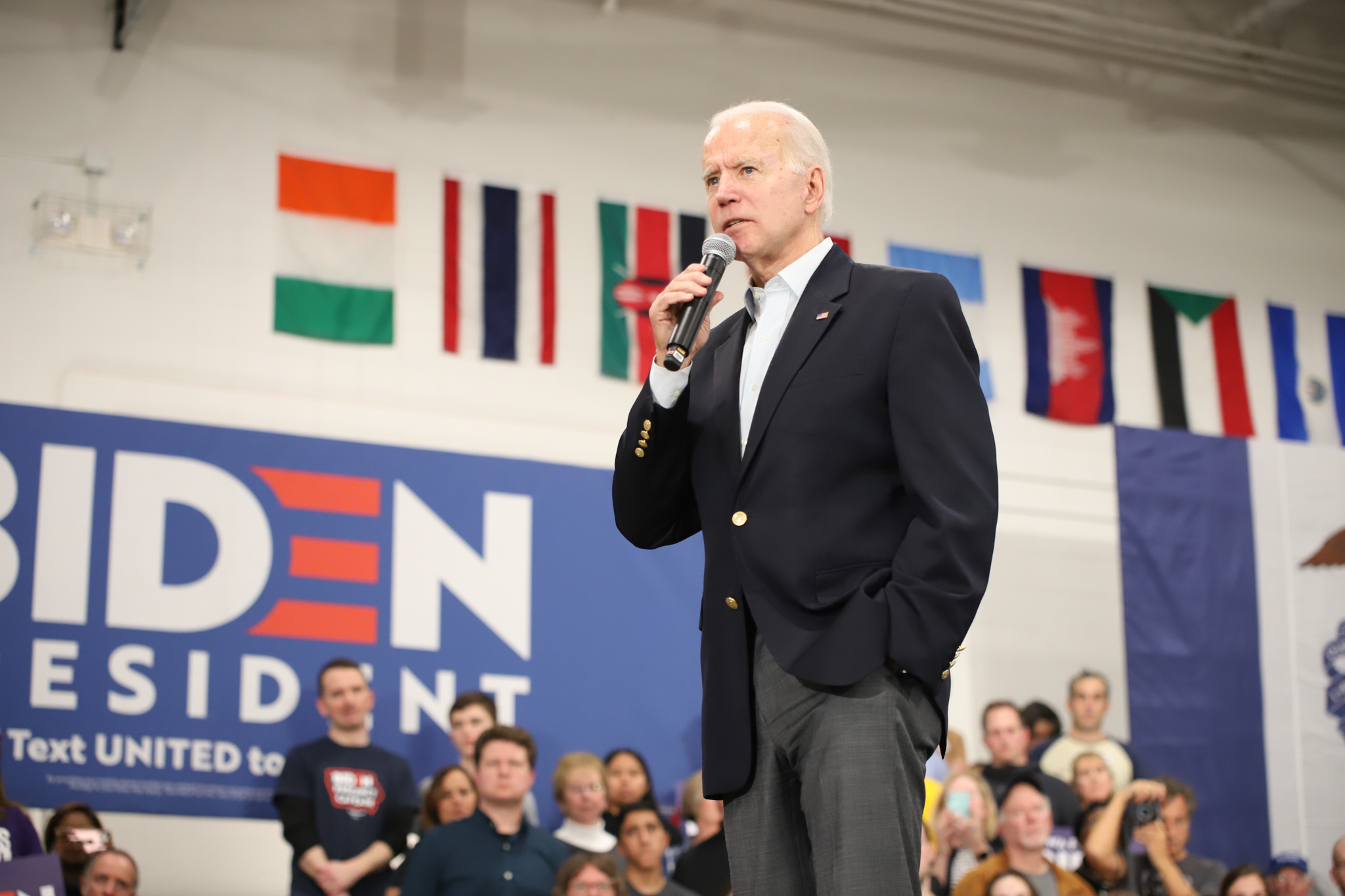
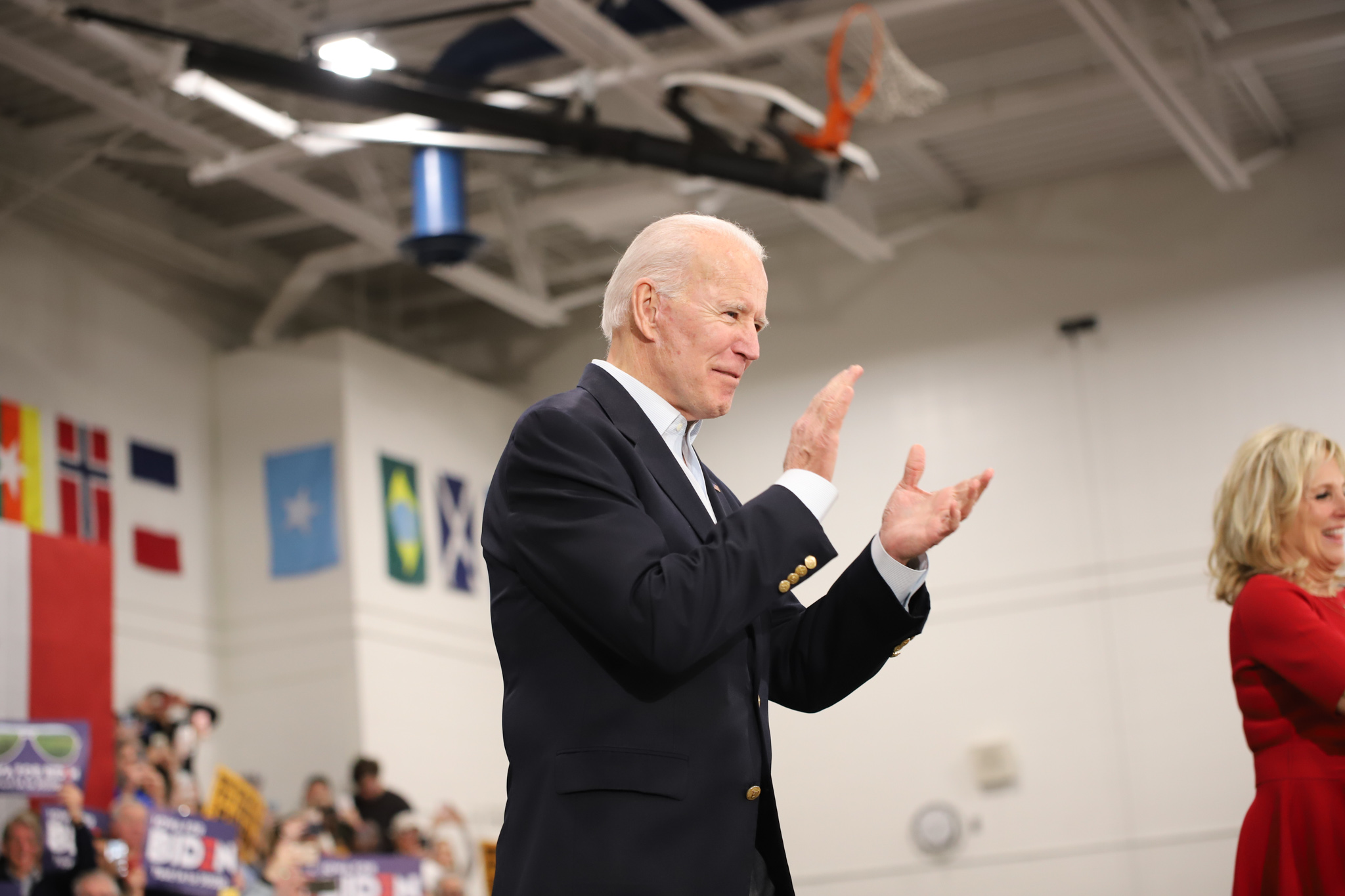

Through the Eyes of a Caucus-goer – Fourteen East
7 February
[…] whole ordeal has become a spectacle. Candidates and organizers swarm to Iowa weeks before the caucus date to gather grassroots […]